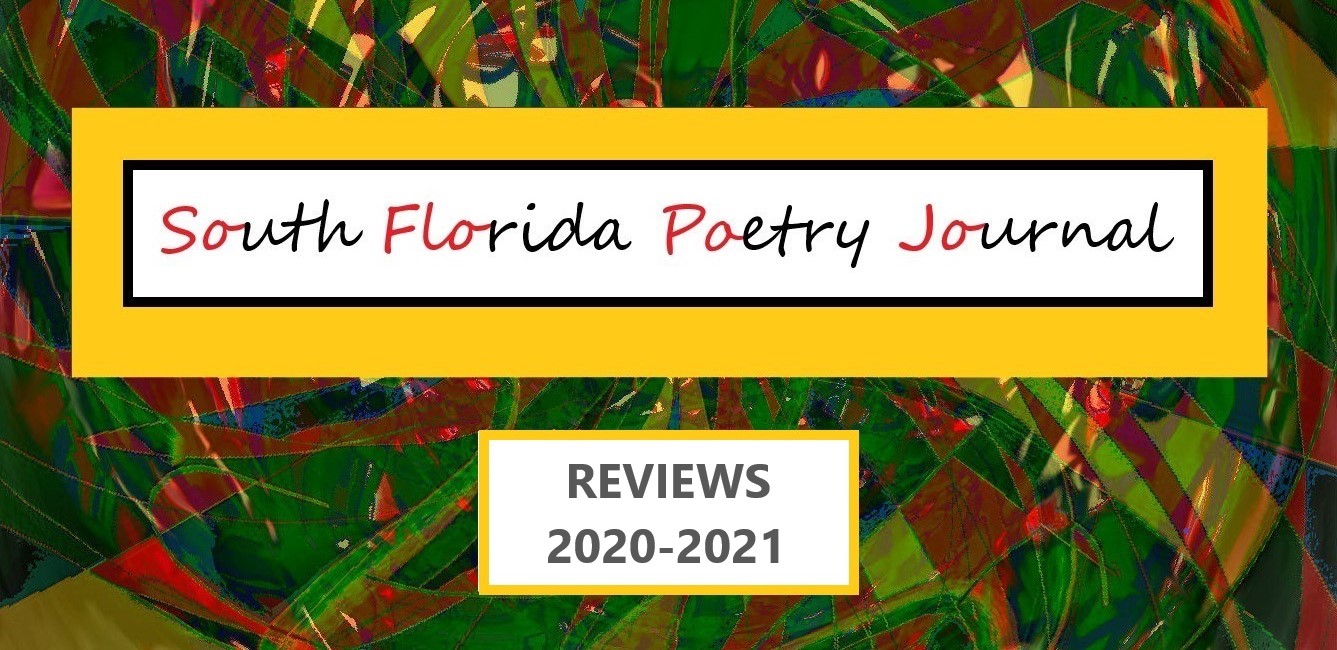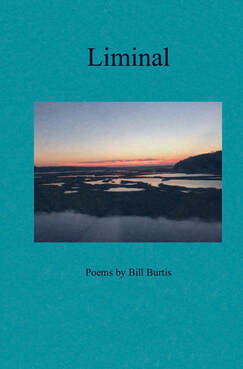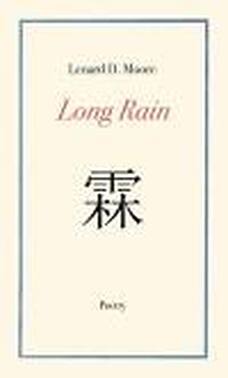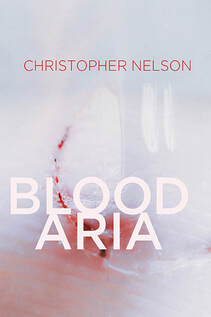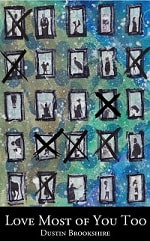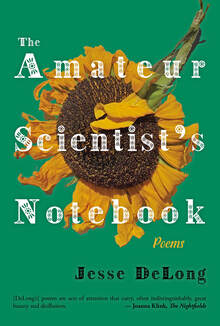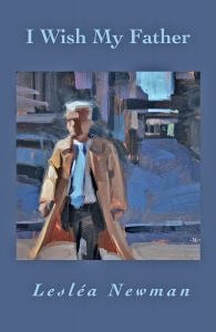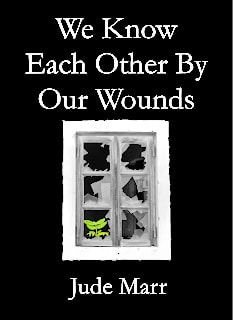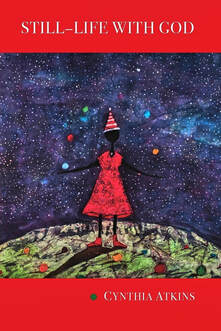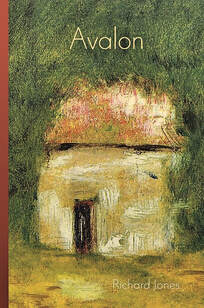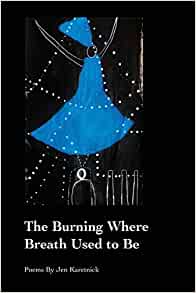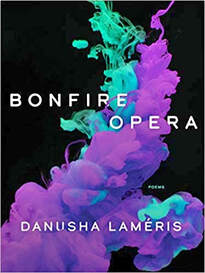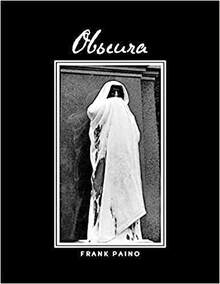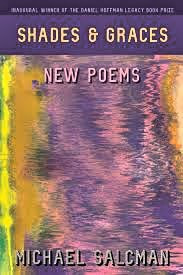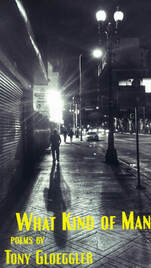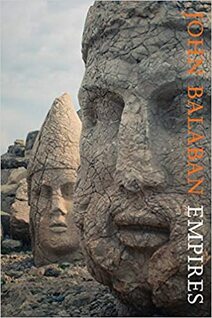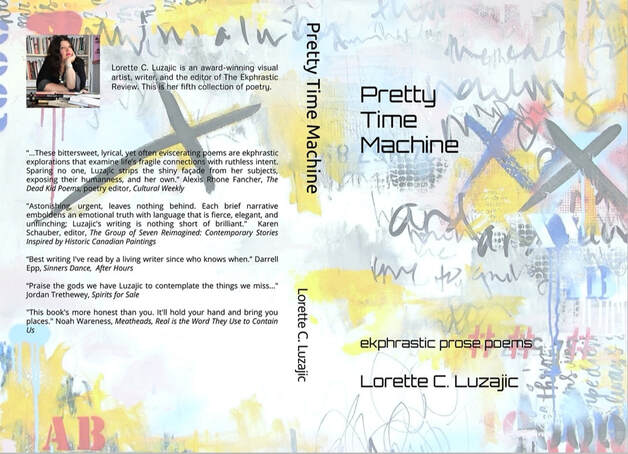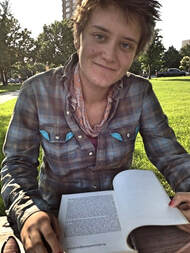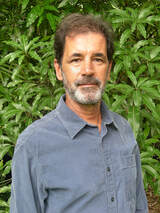SoFloPoJo Contents: Home * Essays * Interviews * Reviews * Special * Video * Visual Arts * Archives * Calendar * Masthead * SUBMIT * Tip Jar
South Florida Poetry Journal's staff reviewers choose the books they want to review. Neither management, nor editors, assign books to review. Poets & Writers however, has a list of journals that considers reviews. Click here to go there.
November 2021
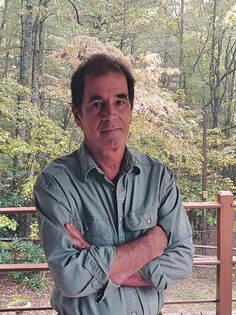
Modesty and Revelation: A review of Liminal by Bill Burtis
(Nine Mile Books, $16) and Long Rain by Lenard D. Moore (Wet Cement Press, $14)
—by Michael Hettich
Modesty is a virtue that carries as little currency in today’s poetry world as it does
in society at large. Nevertheless, true modesty is one of the most attractive and moving attributes an
artist of any kind, and particularly a poet, can possess. I’m not referring here to the false modesty
of the egotist or to the modesty born of a sense of inferiority or insignificance. Instead, I mean
the modesty that blossoms from rigorous and long-term engagement with the tradition of one’s
art, a living knowledge of the achievements of the great writers of the past, an awareness that the
parameters one works within were in fact set by those earlier practitioners, writers who both
surpassed and made possible any writer’s present accomplishments. This kind of modesty is, I
think, characteristic of the true artist, however ambitious or highly accomplished, an attitude that
favors the work itself over the acclaim it might garner, a modesty that takes the role of the poet
to be one of carrying some essential fire from the past on into the future, still potent in its
embers. It’s a modesty that pays less attention to fashion than it does to craft, a modesty that
honors the well-made work at least as highly as it honors the new.
Although Bill Burtis has been writing poetry for well over forty years, Liminal is his first
full-length book. The high quality of the poems here is testament to the care and patience—the
modesty--with which Burtis has practiced his art. Though his voice throughout is quietly self-
effacing, the poems themselves are sure and true. Their wide embrace of forms, subjects, and
emotions demonstrates a thorough versatility with current practices as well as a clear connection
to the masters of the past. The book’s opening poem is indicative of the attention to nuance and
breath taken by this poet:
If there were an angel on the stairs
you would not move aside.
An angel on a bicycle
flickers like sunlight on wavelets.
An angel does not remember
where it came from, but longs to return.
The thought running along the edge
of your consciousness is a signal shard
of angel radio. You suppose
you know no angels.
When you have wandered out of the storm,
an angel is leaving.
It is in the nature of angels
not to show their wings.
(“The Nature of Angels”)
A gentle empathy grounds these plain-spoken, well-crafted poems, as well as a tonally-
nuanced attitude of forgiveness—and compassion—toward others and the self. Even the most
personal poems in this book resist the merely private or confessional, looking outward to the
big world, finding ordinary life richly liminal and luminous--and achingly alive:
Standing in the woods, somewhere out of bounds,
I recall the moment of becoming overcome
by a bodily uncertainty, the trees shifting as if by plan,
moving just slightly to one side or the other,
the path gone, a wisp of ground fog in sunlight…
(“Standing in the Woods”)
In these poems, many of which are set in the woods of Northern New England, Burtis’s
eye for detail reminds us that attention to the actual is itself a form of imagination, as well as a
kind of prayer:
When the owl leaves the branch, he becomes
the wind and the soundless dark,
threads the hem of branches with a faith
before knowledge, safe in the space between things…
(“Owl”)
Finally, Burtis’s work risks a depth of honesty that probes more deeply into unspoken
regions of the self than most poets are willing to dare; in these poems, the poet evokes not
merely his pain and suffering—easy subjects, after all, for dramatic posturing--but instead
explores a state of mind—and soul--that might be called absence-in-presence. Thus, unlike most
first-person “confessional” poems, Burtis casts his speaker neither as victim nor hero, but rather
as a kind of liminal shade, an ordinary man adrift in the world—that is, when the ordinary man is
also an accomplished poet:
I can tell you my life’s choices
were not decisions, paths taken,
but outcomes, a person, place or job
to which I drifted, an empty canoe
on an irresistible current. What did I learn
as the butcher at the beach store,
the reporter at the Upstate daily? How
did I get there or end up with this
person or that. In the house by the river
or the hovel where the snow blew in?...
(“Liminal”)
If Bill Burtis’s modesty results from a deep engagement with Western models of poetic
practice, Lenard D. Moore’s Long Rain displays an entirely different landscape of influences, a
wholly different world view, one in which personal modesty—a virtual erasure of the small self
—is imbued in the very practice of poetry and held in the highest esteem. Moore, who has
written many books of poetry, most of which employ Japanese forms, has in fact been called
“a Japanese poet who lives in North Carolina or a North Carolina poet who lives in an imaginary
medieval Japan” by Guy Davenport, whose wonderful introduction to this book originally
appeared in 1999. Davenport goes on to introduce Moore as a man who “has been a farmer, an
American soldier in Germany, a schoolteacher; his ancestors came from Africa in chains.” Long
Rain is a four-part collection of tanka, the seventh-century Japanese five-line form, here rendered
in free verse, each section introduced by an expertly-turned haibun. The sections—titled “Earth,”
“Wind,” “Fire” and “Water”—teem with luminous details touched on and left to resonate in
themselves, in their interaction with other equally luminous details, and with silence. The “self”
as we commonly know it in the Western tradition, is mostly left out of the picture. Here are a
handful of examples, selected at random from Long Rain:
washing pink sheets
she bends over the washtub
this sunsplashed morning
and how warm wind scatters
the scent of her perfume
*
country night
how many bullfrogs telling
where they are
as I walk the soggy earth
that my grandfather once plowed
*
I sniff the wind
as the scent of honeysuckle
rises from the path
Her blouse blows wide open
the shape of her full breasts
The fact that these poems are pared-down to their essences requires the reader to actively
participate in their blossoming; we must breathe carefully with our ears and bodies to hear the
pauses and nuances that make these poems sing. The effect is serial and cumulative; as with all
good poetry, we learn to read these works as we experience them, supplying silences and
relationships in our imaginations, taking each small poem as a breath of pleasure and revelation,
then finding further revelation in its juxtaposition with the poems that follow.
As in Burtis’s best work, even the most “personal” poems here open into the large world,
the world of mystery and quietness, intimate yet objective in their restraint:
at the river’s edge
only my father hears
the owl that’s whitening
as morning wind stirs the limbs
of the longleaf pine in snow.
Because their effect builds as the sequences unfold, it is difficult to convey the pleasure
of reading Moore’s work, which feels pure and unencumbered by the ephemera of decoration
and ego, pregnant with the kind of innocence that renders even the most ordinary experiences
luminous and new:
shucking sweet corn
on the front porch swing--
the falling light
where crow after crow ascend
into the wood-smoked sky
Reading Lenard Moore’s work one has the feeling of being washed clean, of being given
the world, and oneself, afresh. These are small poems only in their brevity; they open out to the
big world, and continue to resonate long after the book is put down: delicate dances to stir the
heart and mind.
Both Bill Burtis and Lenard Moore are mature, gifted, generous poets whose gifts are
focused on reminding us that the world is made new each time it is freshly perceived. And after
all, this is one of the chief jobs of poetry, now and always: to make the world new. Here again
are the words of Guy Davenport, which apply equally to both of these poets:
He seems, to the world’s eye, to be as representative a husband, father,
and citizen as any sociologist might point to as a statistically ordinary well-
behaved American. And the sociologist would be wrong, for he is a poet,
and all good poets are extraordinary, and very good ones are unique.
Michael Hettich’s most recent book of poetry, The Mica Mine, won the Lena Shull Book Award from the North Carolina Poetry Society and was published in April, 2021. His website is Michaelhettich.com.
(Nine Mile Books, $16) and Long Rain by Lenard D. Moore (Wet Cement Press, $14)
—by Michael Hettich
Modesty is a virtue that carries as little currency in today’s poetry world as it does
in society at large. Nevertheless, true modesty is one of the most attractive and moving attributes an
artist of any kind, and particularly a poet, can possess. I’m not referring here to the false modesty
of the egotist or to the modesty born of a sense of inferiority or insignificance. Instead, I mean
the modesty that blossoms from rigorous and long-term engagement with the tradition of one’s
art, a living knowledge of the achievements of the great writers of the past, an awareness that the
parameters one works within were in fact set by those earlier practitioners, writers who both
surpassed and made possible any writer’s present accomplishments. This kind of modesty is, I
think, characteristic of the true artist, however ambitious or highly accomplished, an attitude that
favors the work itself over the acclaim it might garner, a modesty that takes the role of the poet
to be one of carrying some essential fire from the past on into the future, still potent in its
embers. It’s a modesty that pays less attention to fashion than it does to craft, a modesty that
honors the well-made work at least as highly as it honors the new.
Although Bill Burtis has been writing poetry for well over forty years, Liminal is his first
full-length book. The high quality of the poems here is testament to the care and patience—the
modesty--with which Burtis has practiced his art. Though his voice throughout is quietly self-
effacing, the poems themselves are sure and true. Their wide embrace of forms, subjects, and
emotions demonstrates a thorough versatility with current practices as well as a clear connection
to the masters of the past. The book’s opening poem is indicative of the attention to nuance and
breath taken by this poet:
If there were an angel on the stairs
you would not move aside.
An angel on a bicycle
flickers like sunlight on wavelets.
An angel does not remember
where it came from, but longs to return.
The thought running along the edge
of your consciousness is a signal shard
of angel radio. You suppose
you know no angels.
When you have wandered out of the storm,
an angel is leaving.
It is in the nature of angels
not to show their wings.
(“The Nature of Angels”)
A gentle empathy grounds these plain-spoken, well-crafted poems, as well as a tonally-
nuanced attitude of forgiveness—and compassion—toward others and the self. Even the most
personal poems in this book resist the merely private or confessional, looking outward to the
big world, finding ordinary life richly liminal and luminous--and achingly alive:
Standing in the woods, somewhere out of bounds,
I recall the moment of becoming overcome
by a bodily uncertainty, the trees shifting as if by plan,
moving just slightly to one side or the other,
the path gone, a wisp of ground fog in sunlight…
(“Standing in the Woods”)
In these poems, many of which are set in the woods of Northern New England, Burtis’s
eye for detail reminds us that attention to the actual is itself a form of imagination, as well as a
kind of prayer:
When the owl leaves the branch, he becomes
the wind and the soundless dark,
threads the hem of branches with a faith
before knowledge, safe in the space between things…
(“Owl”)
Finally, Burtis’s work risks a depth of honesty that probes more deeply into unspoken
regions of the self than most poets are willing to dare; in these poems, the poet evokes not
merely his pain and suffering—easy subjects, after all, for dramatic posturing--but instead
explores a state of mind—and soul--that might be called absence-in-presence. Thus, unlike most
first-person “confessional” poems, Burtis casts his speaker neither as victim nor hero, but rather
as a kind of liminal shade, an ordinary man adrift in the world—that is, when the ordinary man is
also an accomplished poet:
I can tell you my life’s choices
were not decisions, paths taken,
but outcomes, a person, place or job
to which I drifted, an empty canoe
on an irresistible current. What did I learn
as the butcher at the beach store,
the reporter at the Upstate daily? How
did I get there or end up with this
person or that. In the house by the river
or the hovel where the snow blew in?...
(“Liminal”)
If Bill Burtis’s modesty results from a deep engagement with Western models of poetic
practice, Lenard D. Moore’s Long Rain displays an entirely different landscape of influences, a
wholly different world view, one in which personal modesty—a virtual erasure of the small self
—is imbued in the very practice of poetry and held in the highest esteem. Moore, who has
written many books of poetry, most of which employ Japanese forms, has in fact been called
“a Japanese poet who lives in North Carolina or a North Carolina poet who lives in an imaginary
medieval Japan” by Guy Davenport, whose wonderful introduction to this book originally
appeared in 1999. Davenport goes on to introduce Moore as a man who “has been a farmer, an
American soldier in Germany, a schoolteacher; his ancestors came from Africa in chains.” Long
Rain is a four-part collection of tanka, the seventh-century Japanese five-line form, here rendered
in free verse, each section introduced by an expertly-turned haibun. The sections—titled “Earth,”
“Wind,” “Fire” and “Water”—teem with luminous details touched on and left to resonate in
themselves, in their interaction with other equally luminous details, and with silence. The “self”
as we commonly know it in the Western tradition, is mostly left out of the picture. Here are a
handful of examples, selected at random from Long Rain:
washing pink sheets
she bends over the washtub
this sunsplashed morning
and how warm wind scatters
the scent of her perfume
*
country night
how many bullfrogs telling
where they are
as I walk the soggy earth
that my grandfather once plowed
*
I sniff the wind
as the scent of honeysuckle
rises from the path
Her blouse blows wide open
the shape of her full breasts
The fact that these poems are pared-down to their essences requires the reader to actively
participate in their blossoming; we must breathe carefully with our ears and bodies to hear the
pauses and nuances that make these poems sing. The effect is serial and cumulative; as with all
good poetry, we learn to read these works as we experience them, supplying silences and
relationships in our imaginations, taking each small poem as a breath of pleasure and revelation,
then finding further revelation in its juxtaposition with the poems that follow.
As in Burtis’s best work, even the most “personal” poems here open into the large world,
the world of mystery and quietness, intimate yet objective in their restraint:
at the river’s edge
only my father hears
the owl that’s whitening
as morning wind stirs the limbs
of the longleaf pine in snow.
Because their effect builds as the sequences unfold, it is difficult to convey the pleasure
of reading Moore’s work, which feels pure and unencumbered by the ephemera of decoration
and ego, pregnant with the kind of innocence that renders even the most ordinary experiences
luminous and new:
shucking sweet corn
on the front porch swing--
the falling light
where crow after crow ascend
into the wood-smoked sky
Reading Lenard Moore’s work one has the feeling of being washed clean, of being given
the world, and oneself, afresh. These are small poems only in their brevity; they open out to the
big world, and continue to resonate long after the book is put down: delicate dances to stir the
heart and mind.
Both Bill Burtis and Lenard Moore are mature, gifted, generous poets whose gifts are
focused on reminding us that the world is made new each time it is freshly perceived. And after
all, this is one of the chief jobs of poetry, now and always: to make the world new. Here again
are the words of Guy Davenport, which apply equally to both of these poets:
He seems, to the world’s eye, to be as representative a husband, father,
and citizen as any sociologist might point to as a statistically ordinary well-
behaved American. And the sociologist would be wrong, for he is a poet,
and all good poets are extraordinary, and very good ones are unique.
Michael Hettich’s most recent book of poetry, The Mica Mine, won the Lena Shull Book Award from the North Carolina Poetry Society and was published in April, 2021. His website is Michaelhettich.com.
May 2021
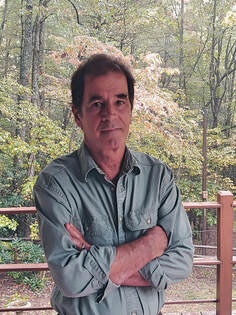
Elemental Witness: A Review of Blood Aria, by Christopher Nelson
(The University of Wisconsin Press, 2021; $16.95)
by Michael Hettich
Perhaps the most striking characteristic of Blood Aria, given its poems’ formal dexterity,
nuanced tonal shifts, and emotional depths, is that it is Christopher Nelson’s first full-length book
of poetry. In its range of subject matter and at times harrowing emotional risk, as well as in the
sheer dexterity of its strategies and tones, Blood Aria is a deeply powerful and necessary book,
one of the richest first books of poetry I have read in years. This is work that reminds us of the
depths of insight and feeling that are unsayable except in the most dexterous, courageous,
emotionally capacious poetry; it reminds us as well of an essential human need that finds
expression only in the best poetry’s capacity to speak through the blood and guts of being,
balanced against the scintillating engagements of the formally-adept mind.
From the first lines of the first poem here, Nelson’s authority is indelibly established:
To you of the unimaginable
tomorrow, we loved as you will love
as you will find a way to
endure this banishment
into the singular island of a body
that will be gently
worn to failure, like a solid pier
by the touch of waves
which regard their work as
constant encouragement…
(“A Dedication”)
This poem, like many in Blood Aria, takes a surprising but fully-earned turn a few lines later,
graining and darkening the expectations these first lines suggest. Nelson’s command of line
and syntax allows him to make poems that feel inevitable in their surprises—and are thus moving in
ways that bristle with startling freshness and mystery.
In a period dominated by books of poetry employing a narrow range of formal types,
tones, attitudes and subject matter, Nelson’s book stands out for its multitude of riches. His
subjects range from intimate explorations of sexual identity and love to wrenching explorations
into the nature of belief and the traditions of religion that determine that belief--and the self that
believes--to the fact of cruelty and violence, to politically-engaged but never sloganeering
statements of political and environmental witness. This is a book of engagement, one that
explores the deepest currents of being, a book willing to attempt to say what is finally beyond the
reach of language, a book of profound spiritual yearning and honesty. Again, it is Nelson’s
rigorous handling of form, his facility with all aspects of poetic craft, that allows his poems to
both reflect and reflect upon the larger world rather than on merely the self in its vicissitudes, the
clear risk of such open-hearted work. That is to say, the etiquette of his formal dexterity allows
Nelson to stay personally vulnerable while still creating powerful art. This characteristic is
perhaps the book’s single most impressive achievement.
If Nelson is adept at short, intimately turned and tuned lyrics, he is equally adept at long,
even oracular, performances. It is in these ambitious, capacious poems that Nelson most deeply
explores the potent confusions, yearnings, and indignations that ache his heart and fuel his
writing. “Love Song for the New World,” a twenty-page-long meditation on love, sex, violence,
culture, suffering and the possibility of redemption—among other things!—explores the nature
(and practice) of belief and its relationship to cruelty, while the equally stunning title poem links
the Biblical story of Cain and Abel to school massacres and other acts of violence that
characterize our time and, in fact, our species:
So the story goes, the first human born
is a murderer--mord, secret killing. And when Earth
drinks the blood, the Lord hears screaming.
Despite three thousand teenagers inside,
what the first responders hear is silence.
When the rounds hit hit hit hit hit
a body, they fragment, four bullets in one:
goodbye lung, goodbye liver, heart, bladder--
house of the soul in the Inuit myth, where raven
pierces the first bladder to let out light, hence day;
then Father takes it away, hence night…
I peeked into the hall, saw a black-clad SWAT team
scooting along the wall, rifles held vertical, a strict formality
that made the whole world seem shabby. It wasn’t real
until then, then nothing was real. Let us go into the field,
the first brother says…
(“Blood Aria”)
Such lines, which elicit a kind of awe in this reader, can only give a hint of the power of this
poem, and of the collection overall.
Nelson is a master of the tonal shift that both reveals surfaces and plumbs mysteries:
The young man and woman picnicking beneath the bamboo
are in love. I can tell by how serious is their playfulness.
Only in courtship does the frivolous determine the future--
perhaps also in academia, politics, and war:
the women whose children are still alive
string laundry from claws of rebar; those without
take their bitterness inward and wither…
(“Little Ochre Flame”)
Finally, for all the ache, rage, grief and pain rendered and plumbed in these poems,
Nelson is a poet of immense tenderness. Perhaps this tenderness is the greatest of his many gifts.
It is rendered most fully, for me, in some of his short, perfectly balanced lyrics, and particularly
in the lovely “Fidelity,” quoted here in full:
Night comes first to the innermost
branches of the elm, then hedgerows, then entire lawns.
My neighbor gets ready for bed, her one lit window and the red pulse
of a radio tower above the bay. Our backyards are small
and touch each other along one side.
(“Fidelity)
Blood Aria is a singular achievement, and a haunting, profoundly beautiful book.
Michael Hettich’s most recent book of poetry, To Start an Orchard, was published in 2019 by Press 53. A new book, The Mica Mine, is forthcoming.
(The University of Wisconsin Press, 2021; $16.95)
by Michael Hettich
Perhaps the most striking characteristic of Blood Aria, given its poems’ formal dexterity,
nuanced tonal shifts, and emotional depths, is that it is Christopher Nelson’s first full-length book
of poetry. In its range of subject matter and at times harrowing emotional risk, as well as in the
sheer dexterity of its strategies and tones, Blood Aria is a deeply powerful and necessary book,
one of the richest first books of poetry I have read in years. This is work that reminds us of the
depths of insight and feeling that are unsayable except in the most dexterous, courageous,
emotionally capacious poetry; it reminds us as well of an essential human need that finds
expression only in the best poetry’s capacity to speak through the blood and guts of being,
balanced against the scintillating engagements of the formally-adept mind.
From the first lines of the first poem here, Nelson’s authority is indelibly established:
To you of the unimaginable
tomorrow, we loved as you will love
as you will find a way to
endure this banishment
into the singular island of a body
that will be gently
worn to failure, like a solid pier
by the touch of waves
which regard their work as
constant encouragement…
(“A Dedication”)
This poem, like many in Blood Aria, takes a surprising but fully-earned turn a few lines later,
graining and darkening the expectations these first lines suggest. Nelson’s command of line
and syntax allows him to make poems that feel inevitable in their surprises—and are thus moving in
ways that bristle with startling freshness and mystery.
In a period dominated by books of poetry employing a narrow range of formal types,
tones, attitudes and subject matter, Nelson’s book stands out for its multitude of riches. His
subjects range from intimate explorations of sexual identity and love to wrenching explorations
into the nature of belief and the traditions of religion that determine that belief--and the self that
believes--to the fact of cruelty and violence, to politically-engaged but never sloganeering
statements of political and environmental witness. This is a book of engagement, one that
explores the deepest currents of being, a book willing to attempt to say what is finally beyond the
reach of language, a book of profound spiritual yearning and honesty. Again, it is Nelson’s
rigorous handling of form, his facility with all aspects of poetic craft, that allows his poems to
both reflect and reflect upon the larger world rather than on merely the self in its vicissitudes, the
clear risk of such open-hearted work. That is to say, the etiquette of his formal dexterity allows
Nelson to stay personally vulnerable while still creating powerful art. This characteristic is
perhaps the book’s single most impressive achievement.
If Nelson is adept at short, intimately turned and tuned lyrics, he is equally adept at long,
even oracular, performances. It is in these ambitious, capacious poems that Nelson most deeply
explores the potent confusions, yearnings, and indignations that ache his heart and fuel his
writing. “Love Song for the New World,” a twenty-page-long meditation on love, sex, violence,
culture, suffering and the possibility of redemption—among other things!—explores the nature
(and practice) of belief and its relationship to cruelty, while the equally stunning title poem links
the Biblical story of Cain and Abel to school massacres and other acts of violence that
characterize our time and, in fact, our species:
So the story goes, the first human born
is a murderer--mord, secret killing. And when Earth
drinks the blood, the Lord hears screaming.
Despite three thousand teenagers inside,
what the first responders hear is silence.
When the rounds hit hit hit hit hit
a body, they fragment, four bullets in one:
goodbye lung, goodbye liver, heart, bladder--
house of the soul in the Inuit myth, where raven
pierces the first bladder to let out light, hence day;
then Father takes it away, hence night…
I peeked into the hall, saw a black-clad SWAT team
scooting along the wall, rifles held vertical, a strict formality
that made the whole world seem shabby. It wasn’t real
until then, then nothing was real. Let us go into the field,
the first brother says…
(“Blood Aria”)
Such lines, which elicit a kind of awe in this reader, can only give a hint of the power of this
poem, and of the collection overall.
Nelson is a master of the tonal shift that both reveals surfaces and plumbs mysteries:
The young man and woman picnicking beneath the bamboo
are in love. I can tell by how serious is their playfulness.
Only in courtship does the frivolous determine the future--
perhaps also in academia, politics, and war:
the women whose children are still alive
string laundry from claws of rebar; those without
take their bitterness inward and wither…
(“Little Ochre Flame”)
Finally, for all the ache, rage, grief and pain rendered and plumbed in these poems,
Nelson is a poet of immense tenderness. Perhaps this tenderness is the greatest of his many gifts.
It is rendered most fully, for me, in some of his short, perfectly balanced lyrics, and particularly
in the lovely “Fidelity,” quoted here in full:
Night comes first to the innermost
branches of the elm, then hedgerows, then entire lawns.
My neighbor gets ready for bed, her one lit window and the red pulse
of a radio tower above the bay. Our backyards are small
and touch each other along one side.
(“Fidelity)
Blood Aria is a singular achievement, and a haunting, profoundly beautiful book.
Michael Hettich’s most recent book of poetry, To Start an Orchard, was published in 2019 by Press 53. A new book, The Mica Mine, is forthcoming.
|
Judy Ireland reviews Dustin Brookshire's new chapbook Love Most of You Too
Available for Order from Harbor Editions on 5/14/21. |
Reading Dustin Brookshire’s new chapbook, Love Most of You Too, is an encounter with a poetic voice that is honest, unique, fresh, and often feisty. The poems are confessional and revealing, but they never ask for sympathy. Nor do they ask for forgiveness or permission. Instead, the reader is invited into the lived experiences of the poems’ speakers; the reader is invited to be a sort of confidant as each of the twenty poems unfolds.
The title of the first poem, “Wanting to Come Out”, places it within a tradition of coming-out poems, but there is a doubling in the poem that is unexpected. The urges toward self-harm that are often coupled with the pain of coming out are witnessed by the brother, who wants the speaker to come out of the bathroom before he harms himself. Love is present but unspoken, and as the speaker observes earlier in the poem, “…I realize that’s all we do, / explain our scars to one another / and hope for understanding.”
Gayness can bring condemnation in the poems in this chapbook, often accompanied by religious fervor (be sure to read the villanelle, “Aunt with a Mission”), but it is also a source of humor (“Rule #3 of Sexual Relations”) and a source of defiance and pride. The poem “Faggot” recalls the slur being wielded in childhood but claimed and strategically played in the end: “I deal the word / like a shark in Vegas”.
The title of the chapbook comes from the final poem, “Meeting Judy Blume”. When the speaker tells Judy Blume that the gays love her, she replies, “I love most of you too”. It’s a wonderfully nuanced poem with a lot going on, and it makes a great finale for this chapbook.
Family relationships are explored also, in Love Most of You Too, with complex poems about the mother figure, and the grandmother appearing as a source of love and wisdom (“Losing at Cards”). Friendships are of equal importance, and poetic mentorship is highlighted in the poems themselves, and in the notes and acknowledgments. And don’t forget to read the dedication – it’s almost a poem of its own. It praises the poets’ past English teachers, including one who advised the poet to stop writing poems.
Another thread that runs throughout this chapbook is the idea of fidelity. It is explored in various types of relationships, and features prominently in “Memo”, “Addends”, and “The List”. It’s as if being true to oneself (a hard-won victory) teaches one to be loyal to others and to place a high value on fidelity.
Many poets have remarked on how difficult it is to write poems that appear to be written easily. The poems in this chapbook are so clear, so barefaced, and so honest – they appear to have been dashed off in the heat of the moment. However, as each poem is read and re-read, it is clear that every line was carefully crafted, each poem brought fully to fruition. The scaffolding recedes, and all we see are the exact words the poet wanted us to see, rhymed or unrhymed, formal or free.
Dustin Brookshire has written a delightful book of poems, grounded in the world of humans who hurt each other, but who also love and heal each other and themselves. If you want to laugh out loud, read “I Should Write Soap Operas”. If you want to be moved, read “Furious Cleaning”. If you want to read twenty poems that are completely worthy of your close attention, read Dustin Brookshire’s Love Most of You Too in its entirety.
February 2021
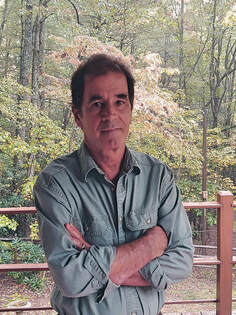
An Alchemy of Forms and Desire:
A Review of The Amateur Scientist’s Notebook, by Jesse De Long
(Baobab Press, 2021, $16.95)
—by Michael Hettich
Jesse De Long’s debut collection, The Amateur Scientist’s Notebook, teems with formally-dexterous, invigorating poems whose subjects, verse-forms and tonal shifts range from intimate, deeply-personal lyrics to outward-looking, scholarly meditations--yet manages to braid all these disparate voicings into a coherent, satisfying whole. The best poems here wake us to an alertness that is one of the salient functions of true art. We leave this book as we leave a gallery after viewing a challenging, powerful exhibition: for a while we walk around with freshly-cleared eyes, marveling at the teeming details and shadings of light we rarely attend to. That is: for a few moments, we see the world fresh.
The essence of good poetry lies in its formal thinking, the way the forms the poet employs lead him or her to revelations that would be otherwise unavailable. Such formal thinking has little to do with traditional structures except insofar as the good poet must have craft, and to have craft one must have steeped oneself in the time-honored practices of one’s art. But the task of true craft is to somehow go beyond the merely traditional into the personal, innovative, and genuinely new. The best poets teach us how to read their work, and in many of the poems here, De Long is an exemplary teacher. The tonal shifts and voices of his poems startle at first, then draw us closer, to listen and see:
You spoke:
The shallows are murky
where your feet floundered.
your spine a river
& my chest a cutbank.
Drawing your hands
from the current, you drape water
down your hair so strands
Your ribs stone pillars
& my mouth constant wind.
settle on your neck. As you turn
to me, a thread dissects
your forehead. Skitter bugs
My hand a shovel
& your stomach hard earth.
crackle over the sound
of a river falling from you…
(“Floret as Bird”)
In other poems De Long employs journalistic techniques and scientific notation along with lyric, pastoral, confessional and “organic” forms to create a wide array of voices, textures and content – autonomous utterances welded into a coherent whole. While some poems employ columns of prose next to verse fragments and factual notation, others employ chunks of unbroken prose to render the figures, voices—and thinking—of such disparate figures as Isaac Newton and John Donne:
Picture Newton as an older boy, almost a man. This would be during some summer at his family’s farm in Woolsthorpe. While he was digging an
irrigation ditch, he noticed a girl amble up the road, holding a parcel of letters & a package wrapped in brown paper. When she neared him, she
rested beside three makeshift graves… From the paper, the girl unwrapped an apple. As Isaac strained under the meeting strengths of shovel &
earth, he watched her eat the fruit to its core. When she finished, she allowed their eyes to meet & placed the core on top of the grave & continued
up the road…
(“Newton and the Law of Grave Eating”)
Such cinematic depictions are juxtaposed against moments of lovely intimacy:
Because my side of the sheet has lost light’s warmth, I scoot close, press my stomach to your spine. We share what makes us visible.
(“Light Withdrawals/Experiments in the Field of Light”)
The fact that this book is difficult to render through snippets of quotation is a testament to the richness of its ambitions, its richness of observations, and the exuberance of its linguistic thrill. It should also be noted that, despite its aspirations, this is a deeply unpretentious book; the poet’s enthusiasms are wide; his embrace of the big world, of the intimacies of daily life and of history--as well as of the possibilities of his art--saves his work from both pretention and obfuscation while allowing him to reach beyond the more well-trodden and familiar paths of contemporary poetry. The Amateur’s Scientist’s Notebook is, in short, a pleasure.
Jesse DeLong teaches Composition and Literature at Louisiana State University, but he grew up in Northern Idaho and Western Montana. He holds a B.A.in English from the University of Montana and an M.F.A. in Poetry from the University of Alabama. His poems have appeared in the anthologies Best New Poets 2011 and Feast: Poetry and Recipes for a Full Seating at Dinner as well as the journals Colorado Review, Mid-American Review, Indiana Review, Painted Bride Quarterly and Typo. With book artist Sonja G. Rossow, he has published several artist’s books and chapbooks, including Tearings and Other Poems, and Earthwards, both through Curley Head Press. Other than traditional academic settings, DeLong has taught Literature at Donaldson Correctional Facility and has worked as a Case Manager at a Reentry Services Center, teaching hard-and-soft-skill courses, such as Anger Management and Parenting, to parolees and probationers. He resides in Baton Rouge, Louisiana.
Michael Hettich’s most recent book is To Start an Orchard (Press 53, 2019). A new book, The Mica Mine, Is forthcoming. Hettich is SoFloPoJo’s official reviewer.
A Review of The Amateur Scientist’s Notebook, by Jesse De Long
(Baobab Press, 2021, $16.95)
—by Michael Hettich
Jesse De Long’s debut collection, The Amateur Scientist’s Notebook, teems with formally-dexterous, invigorating poems whose subjects, verse-forms and tonal shifts range from intimate, deeply-personal lyrics to outward-looking, scholarly meditations--yet manages to braid all these disparate voicings into a coherent, satisfying whole. The best poems here wake us to an alertness that is one of the salient functions of true art. We leave this book as we leave a gallery after viewing a challenging, powerful exhibition: for a while we walk around with freshly-cleared eyes, marveling at the teeming details and shadings of light we rarely attend to. That is: for a few moments, we see the world fresh.
The essence of good poetry lies in its formal thinking, the way the forms the poet employs lead him or her to revelations that would be otherwise unavailable. Such formal thinking has little to do with traditional structures except insofar as the good poet must have craft, and to have craft one must have steeped oneself in the time-honored practices of one’s art. But the task of true craft is to somehow go beyond the merely traditional into the personal, innovative, and genuinely new. The best poets teach us how to read their work, and in many of the poems here, De Long is an exemplary teacher. The tonal shifts and voices of his poems startle at first, then draw us closer, to listen and see:
You spoke:
The shallows are murky
where your feet floundered.
your spine a river
& my chest a cutbank.
Drawing your hands
from the current, you drape water
down your hair so strands
Your ribs stone pillars
& my mouth constant wind.
settle on your neck. As you turn
to me, a thread dissects
your forehead. Skitter bugs
My hand a shovel
& your stomach hard earth.
crackle over the sound
of a river falling from you…
(“Floret as Bird”)
In other poems De Long employs journalistic techniques and scientific notation along with lyric, pastoral, confessional and “organic” forms to create a wide array of voices, textures and content – autonomous utterances welded into a coherent whole. While some poems employ columns of prose next to verse fragments and factual notation, others employ chunks of unbroken prose to render the figures, voices—and thinking—of such disparate figures as Isaac Newton and John Donne:
Picture Newton as an older boy, almost a man. This would be during some summer at his family’s farm in Woolsthorpe. While he was digging an
irrigation ditch, he noticed a girl amble up the road, holding a parcel of letters & a package wrapped in brown paper. When she neared him, she
rested beside three makeshift graves… From the paper, the girl unwrapped an apple. As Isaac strained under the meeting strengths of shovel &
earth, he watched her eat the fruit to its core. When she finished, she allowed their eyes to meet & placed the core on top of the grave & continued
up the road…
(“Newton and the Law of Grave Eating”)
Such cinematic depictions are juxtaposed against moments of lovely intimacy:
Because my side of the sheet has lost light’s warmth, I scoot close, press my stomach to your spine. We share what makes us visible.
(“Light Withdrawals/Experiments in the Field of Light”)
The fact that this book is difficult to render through snippets of quotation is a testament to the richness of its ambitions, its richness of observations, and the exuberance of its linguistic thrill. It should also be noted that, despite its aspirations, this is a deeply unpretentious book; the poet’s enthusiasms are wide; his embrace of the big world, of the intimacies of daily life and of history--as well as of the possibilities of his art--saves his work from both pretention and obfuscation while allowing him to reach beyond the more well-trodden and familiar paths of contemporary poetry. The Amateur’s Scientist’s Notebook is, in short, a pleasure.
Jesse DeLong teaches Composition and Literature at Louisiana State University, but he grew up in Northern Idaho and Western Montana. He holds a B.A.in English from the University of Montana and an M.F.A. in Poetry from the University of Alabama. His poems have appeared in the anthologies Best New Poets 2011 and Feast: Poetry and Recipes for a Full Seating at Dinner as well as the journals Colorado Review, Mid-American Review, Indiana Review, Painted Bride Quarterly and Typo. With book artist Sonja G. Rossow, he has published several artist’s books and chapbooks, including Tearings and Other Poems, and Earthwards, both through Curley Head Press. Other than traditional academic settings, DeLong has taught Literature at Donaldson Correctional Facility and has worked as a Case Manager at a Reentry Services Center, teaching hard-and-soft-skill courses, such as Anger Management and Parenting, to parolees and probationers. He resides in Baton Rouge, Louisiana.
Michael Hettich’s most recent book is To Start an Orchard (Press 53, 2019). A new book, The Mica Mine, Is forthcoming. Hettich is SoFloPoJo’s official reviewer.
I Wish My Father by Lesléa Newman
(Headmistress Press, 2020, $15)
Reviewed by Freesia McKee
One of Lesléa Newman’s lifelong projects is to write books that start community conversations. Her newest collection, I Wish My Father, would be useful to anyone processing the challenges of eldercare, especially in a society that often renders this work invisible.
The book, published by Headmistress Press (full disclosure: my chapbook was also published by Headmistress), chronicles the final years of a father’s life through the eyes of a daughter who is trying to balance keeping him safe and respecting his autonomy. Achieving this balance becomes especially tenuous because the father is a spunky, headstrong lawyer who still takes the train to his office in Brooklyn as an octogenarian, “too proud to accept the seat/that surely someone must have offered/the bedraggled 89-year-old businessman.”
I Wish My Father is funny as hell, driven by Mr. Newman’s seemingly endless wise-ass comments like, “I was supposed to drop dead/at my desk when I was 75/maybe 80, and leave your mother/a million bucks.” The way the daughter tells it, it seems that this humor is an essential part of her dad’s personality, but it’s also the manner in which he’s processing the recent loss of his wife (the inciting incident of the book) and his declining capacity to practice law, inability to live independently, and deteriorating health.
One of the things that makes family eldercare so difficult is that it morphs familial roles: the child manages decisions for the parent while the parent is forced to face their loss of power. Accepting this can be difficult for both parties, and I Wish My Father addresses many aspects of the grueling nature of this transition. Newman shows us day-after-day worrying and coaxing and the exhaustion of needing to remain on one’s feet. “…I am the daughter/who takes care of everything./I am the daughter/who fixes everything./I am the daughter who doesn’t/have the heart/to tell her disturbed/and disturbing father/there are no people next door,” Newman writes of her father’s nightly hallucinations.
Because this memoir-in-verse is relayed with a nuanced honesty, we become endeared to the feisty, full of life father even though we know from the beginning that we have “finally drop[ped] down//into a seat beside him/to wait and wonder/when on earth he’ll be called.”
The daughter, of course, knows this, too. But she is equally hilarious, or—dare I say—funnier than the father because of the decades she’s spent honing her observation skills and, maybe, watching him joke. She takes a page from his book as she uses humor to process her inevitable grief.
After her father’s decline, entry into assisted living, and ultimate death, in one of the many poems where the title slides into the first stanza, Newman writes, “My Father Was Never,” “on time once in his entire life./We could always count/on him being a good 20 minutes/early.”
She builds example after example of her father’s compulsive timeliness, including the text of a thank you note he received: “Dear Mr. Newman,/Thank you for coming to my Bar Mitzvah./You were the first one there.” In a loving jab her father would surely have approved of, Newman finishes the poem, “I wonder just how early he was/and how on earth he would feel/to learn that from this day forth//for all time he will always/and forever be known/as the late Mr. Newman.”
I Wish My Father is the sequel to Newman’s I Carry My Mother, which I reviewed for another publication in 2016. I would recommend both books for any person interested in a thoughtful reflection on how eldercare changes the roles in a family and how to commemorate beloved parents in all their beauty, comedy, and complication.
Freesia McKee is author of the chapbook How Distant the City (Headmistress Press, 2018). Her words have appeared in Flyway, Bone Bouquet, So to Speak, Tinderbox Poetry Journal, Virga, Painted Bride Quarterly, CALYX, About Place Journal, South Dakota Review, New Mexico Review, and the Ms. Magazine Blog. Freesia is a staff book reviewer for South Florida Poetry Journal. Her reviews have also appeared in Tupelo Quarterly, Pleiades Book Review, Gulf Stream, and The Drunken Odyssey. Freesia was the winner of CutBank Literary Journal’s 2018 Patricia Goedicke Prize in Poetry, chosen by Sarah Vap. She is also Guest Editor for SoFloPoJo's November 2020 issue.
Find her online at freesiamckee.com or on Twitter at @freesiamckee.
(Headmistress Press, 2020, $15)
Reviewed by Freesia McKee
One of Lesléa Newman’s lifelong projects is to write books that start community conversations. Her newest collection, I Wish My Father, would be useful to anyone processing the challenges of eldercare, especially in a society that often renders this work invisible.
The book, published by Headmistress Press (full disclosure: my chapbook was also published by Headmistress), chronicles the final years of a father’s life through the eyes of a daughter who is trying to balance keeping him safe and respecting his autonomy. Achieving this balance becomes especially tenuous because the father is a spunky, headstrong lawyer who still takes the train to his office in Brooklyn as an octogenarian, “too proud to accept the seat/that surely someone must have offered/the bedraggled 89-year-old businessman.”
I Wish My Father is funny as hell, driven by Mr. Newman’s seemingly endless wise-ass comments like, “I was supposed to drop dead/at my desk when I was 75/maybe 80, and leave your mother/a million bucks.” The way the daughter tells it, it seems that this humor is an essential part of her dad’s personality, but it’s also the manner in which he’s processing the recent loss of his wife (the inciting incident of the book) and his declining capacity to practice law, inability to live independently, and deteriorating health.
One of the things that makes family eldercare so difficult is that it morphs familial roles: the child manages decisions for the parent while the parent is forced to face their loss of power. Accepting this can be difficult for both parties, and I Wish My Father addresses many aspects of the grueling nature of this transition. Newman shows us day-after-day worrying and coaxing and the exhaustion of needing to remain on one’s feet. “…I am the daughter/who takes care of everything./I am the daughter/who fixes everything./I am the daughter who doesn’t/have the heart/to tell her disturbed/and disturbing father/there are no people next door,” Newman writes of her father’s nightly hallucinations.
Because this memoir-in-verse is relayed with a nuanced honesty, we become endeared to the feisty, full of life father even though we know from the beginning that we have “finally drop[ped] down//into a seat beside him/to wait and wonder/when on earth he’ll be called.”
The daughter, of course, knows this, too. But she is equally hilarious, or—dare I say—funnier than the father because of the decades she’s spent honing her observation skills and, maybe, watching him joke. She takes a page from his book as she uses humor to process her inevitable grief.
After her father’s decline, entry into assisted living, and ultimate death, in one of the many poems where the title slides into the first stanza, Newman writes, “My Father Was Never,” “on time once in his entire life./We could always count/on him being a good 20 minutes/early.”
She builds example after example of her father’s compulsive timeliness, including the text of a thank you note he received: “Dear Mr. Newman,/Thank you for coming to my Bar Mitzvah./You were the first one there.” In a loving jab her father would surely have approved of, Newman finishes the poem, “I wonder just how early he was/and how on earth he would feel/to learn that from this day forth//for all time he will always/and forever be known/as the late Mr. Newman.”
I Wish My Father is the sequel to Newman’s I Carry My Mother, which I reviewed for another publication in 2016. I would recommend both books for any person interested in a thoughtful reflection on how eldercare changes the roles in a family and how to commemorate beloved parents in all their beauty, comedy, and complication.
Freesia McKee is author of the chapbook How Distant the City (Headmistress Press, 2018). Her words have appeared in Flyway, Bone Bouquet, So to Speak, Tinderbox Poetry Journal, Virga, Painted Bride Quarterly, CALYX, About Place Journal, South Dakota Review, New Mexico Review, and the Ms. Magazine Blog. Freesia is a staff book reviewer for South Florida Poetry Journal. Her reviews have also appeared in Tupelo Quarterly, Pleiades Book Review, Gulf Stream, and The Drunken Odyssey. Freesia was the winner of CutBank Literary Journal’s 2018 Patricia Goedicke Prize in Poetry, chosen by Sarah Vap. She is also Guest Editor for SoFloPoJo's November 2020 issue.
Find her online at freesiamckee.com or on Twitter at @freesiamckee.
Guest Reviews

A review of We Know Each Other By Our Wounds by Jude Marr
—by Judy Ireland
Having read Jude Marr’s earlier chapbook, Breakfast for the Birds, I expected to find finely-wrought poems in their new volume, We Know Each Other By Our Wounds. I was not disappointed. Every line of every poem hits home. The expert wordplay that makes Marr’s poems so pleasurable when read aloud is put to good use in addressing unifying themes in this new book: embodiment, identity, language, freedom, privilege, and nature along with the dumb violence committed against it.
The wounds uncovered in these poems are universal. They come with the territory when one is embodied, made of matter, and especially when one’s embodiment is confined and labeled by social structures that do violence to the psyche. Marr suggests in “Taxonomies” that “taxonomy is death”, and later in the poem declares, “I must deviate”. In the poem after which the collection is titled, we find the poet acknowledging their privilege and their strictures, but still creating through the wounds, not from them or because of them:
when a poet’s lips are sewn
with twine, a scissor or a razorblade
may interstice
(sound dribbles through--
The family not only does violence to the individual in Marr’s poem, “Family Values”, it also acts as an agent of society to enforce the concepts of gender that are assigned to bodies without regard to their persons. The speaker asserts, “relatively speaking I am matter’s child, and matter/still: keep/my fucking family: keep/your binaries: I am me: not/a theory not a girl.” Humans are required to perform their perceived gender in “Dysmorphia in Drag,” which leaves one feeling “wrong-fleshed”.
Damaged humans find their corollary in fragile forests that are destroyed by fire. The entire human family does so much violence to the earth in later poems that the speaker in “Cognitive Dissonance” declares, “we broke the planet”. Containment and enclosure stunt the growth of a potted maple in “Horticulture as a Cure for Loneliness”, and we are told that being made of matter matters. Our embodiment dooms us, in a way, and I believe the author is showing us that the only way forward is through creation.
In the first poem of this collection, “Public Service Announcements”, the speaker says they are “only a seeker/after light—“. While the reality in these poems is often grim and hardening, I also found the light in poems such as “To the Man Who Left a Jar of Bees at the Bookstore”, in which the bookstore staff not only feed the bees that are forgotten but show them art prints, and set them where they can read through the glass. Similarly, I take heart from the determined but futile action described in the final image on the beach in “Old Womxn Take to the Road”, where the reader sees “womxn, just/catching waves in buckets, bowls and cups.”
Jude Marr has created images that are often cinematic and always vivid. They embody complex truths, and will stay with you long after you’ve finished reading these poems. We Know Each Other By Our Wounds will speak to the sense of being exiled or being “other” that almost every reader harbors within, for whatever reason, and the sheer beauty of language put to work in interesting new ways will offer you an experience you’re unlikely to forget anytime soon.
—by Judy Ireland
Having read Jude Marr’s earlier chapbook, Breakfast for the Birds, I expected to find finely-wrought poems in their new volume, We Know Each Other By Our Wounds. I was not disappointed. Every line of every poem hits home. The expert wordplay that makes Marr’s poems so pleasurable when read aloud is put to good use in addressing unifying themes in this new book: embodiment, identity, language, freedom, privilege, and nature along with the dumb violence committed against it.
The wounds uncovered in these poems are universal. They come with the territory when one is embodied, made of matter, and especially when one’s embodiment is confined and labeled by social structures that do violence to the psyche. Marr suggests in “Taxonomies” that “taxonomy is death”, and later in the poem declares, “I must deviate”. In the poem after which the collection is titled, we find the poet acknowledging their privilege and their strictures, but still creating through the wounds, not from them or because of them:
when a poet’s lips are sewn
with twine, a scissor or a razorblade
may interstice
(sound dribbles through--
The family not only does violence to the individual in Marr’s poem, “Family Values”, it also acts as an agent of society to enforce the concepts of gender that are assigned to bodies without regard to their persons. The speaker asserts, “relatively speaking I am matter’s child, and matter/still: keep/my fucking family: keep/your binaries: I am me: not/a theory not a girl.” Humans are required to perform their perceived gender in “Dysmorphia in Drag,” which leaves one feeling “wrong-fleshed”.
Damaged humans find their corollary in fragile forests that are destroyed by fire. The entire human family does so much violence to the earth in later poems that the speaker in “Cognitive Dissonance” declares, “we broke the planet”. Containment and enclosure stunt the growth of a potted maple in “Horticulture as a Cure for Loneliness”, and we are told that being made of matter matters. Our embodiment dooms us, in a way, and I believe the author is showing us that the only way forward is through creation.
In the first poem of this collection, “Public Service Announcements”, the speaker says they are “only a seeker/after light—“. While the reality in these poems is often grim and hardening, I also found the light in poems such as “To the Man Who Left a Jar of Bees at the Bookstore”, in which the bookstore staff not only feed the bees that are forgotten but show them art prints, and set them where they can read through the glass. Similarly, I take heart from the determined but futile action described in the final image on the beach in “Old Womxn Take to the Road”, where the reader sees “womxn, just/catching waves in buckets, bowls and cups.”
Jude Marr has created images that are often cinematic and always vivid. They embody complex truths, and will stay with you long after you’ve finished reading these poems. We Know Each Other By Our Wounds will speak to the sense of being exiled or being “other” that almost every reader harbors within, for whatever reason, and the sheer beauty of language put to work in interesting new ways will offer you an experience you’re unlikely to forget anytime soon.
A Review of Cynthia Atkins’ Still-Life with God
—by Judy Ireland
There is religion in Cynthia Atkins’ Still-Life with God, and then there is God. God is not confined in these poems but embodied in the objects of life, existing under our very noses. Religion is a clergyman fondling a church organist, but God is something much greater: a wishing well, a treasure hunt, an alibi, a medicine cabinet, a library, an editor, a shock jock, a bullet, a butter dish, a myth. God is active in everyday lives but is clearly not a flawless deity. God is a rapist, and Mother Nature the victim, who then responds by conjuring Art.
One of the miracles of Atkins’ book is her ability to give us a mythic God and an ordinary god, as well as a Goddess who is folding sheets in a laundromat, “pink curlers of baroque/in her hair, singing and creasing/a t-shirt with sequins.” The poem, “A Goddess in Purple Rain”, is an homage to Prince, but it is also one of many poems pointing to other forces that make up this existence to which we all belong. “We are all in the body of this night,” the speaker of the poem says. “The stars allow/me to follow her….”
There is something abundant and universal about this collection of poems, even beyond the theological and artistic concerns indicated by the book’s title. Atkins’ poems explore the nature of the self, of the body, of family relationships including childhood and marriage, as well as the ubiquity of violence in all aspects of life. Her images harken back to an earlier time with S&H green stamps and phone booths, but they also point to our own century, full of the internet, selfies, and “alt-sleuths”.
Images of enclosure are rife throughout all four sections of this collection. We are introduced to the “spare room of loneliness” in “Anorexia Nervosa”, and to “the empty room of never” in “Phone Booth”. There are “polite rooms/where I keep my hands folded and mouth shut” in “God is My Alibi”, and the speaker in the same poem says, “I am dizzy in a room/with many doors”. In addition to rooms, there are phone booths and photo booths and people inside metal cars in the middle of a traffic jam. The emotions of sorrow, loss and longing are paramount within and outside of these enclosures, and in many poems, there are an abundance of shadows.
Cynthia Atkins’ Still-Life with God feels important and essential, and not at all as heavy as one might expect from a collection of poems built around such heavy topics. The fact that joy is often followed by violence in these poems does not discount the fact that the joy is there. The sound of these poems pleases the ear, and their titles surprise and intrigue the reader. It is possible to go into this volume of poems again and again to gather the “little chicks/hatching like word of mouth/in a town where the streets/are nouns….” in “Type”, or to listen to “the bird paying rent with song” in “Cuckoo Clock”. These poems deserve our close attention as readers and as human beings, engaged with the big questions of life and with its smaller but most intriguing details.
To buy a copy of this book, visit: https://bookshop.org/books/still-life-with-god/9781733023306?aid=63
—by Judy Ireland
There is religion in Cynthia Atkins’ Still-Life with God, and then there is God. God is not confined in these poems but embodied in the objects of life, existing under our very noses. Religion is a clergyman fondling a church organist, but God is something much greater: a wishing well, a treasure hunt, an alibi, a medicine cabinet, a library, an editor, a shock jock, a bullet, a butter dish, a myth. God is active in everyday lives but is clearly not a flawless deity. God is a rapist, and Mother Nature the victim, who then responds by conjuring Art.
One of the miracles of Atkins’ book is her ability to give us a mythic God and an ordinary god, as well as a Goddess who is folding sheets in a laundromat, “pink curlers of baroque/in her hair, singing and creasing/a t-shirt with sequins.” The poem, “A Goddess in Purple Rain”, is an homage to Prince, but it is also one of many poems pointing to other forces that make up this existence to which we all belong. “We are all in the body of this night,” the speaker of the poem says. “The stars allow/me to follow her….”
There is something abundant and universal about this collection of poems, even beyond the theological and artistic concerns indicated by the book’s title. Atkins’ poems explore the nature of the self, of the body, of family relationships including childhood and marriage, as well as the ubiquity of violence in all aspects of life. Her images harken back to an earlier time with S&H green stamps and phone booths, but they also point to our own century, full of the internet, selfies, and “alt-sleuths”.
Images of enclosure are rife throughout all four sections of this collection. We are introduced to the “spare room of loneliness” in “Anorexia Nervosa”, and to “the empty room of never” in “Phone Booth”. There are “polite rooms/where I keep my hands folded and mouth shut” in “God is My Alibi”, and the speaker in the same poem says, “I am dizzy in a room/with many doors”. In addition to rooms, there are phone booths and photo booths and people inside metal cars in the middle of a traffic jam. The emotions of sorrow, loss and longing are paramount within and outside of these enclosures, and in many poems, there are an abundance of shadows.
Cynthia Atkins’ Still-Life with God feels important and essential, and not at all as heavy as one might expect from a collection of poems built around such heavy topics. The fact that joy is often followed by violence in these poems does not discount the fact that the joy is there. The sound of these poems pleases the ear, and their titles surprise and intrigue the reader. It is possible to go into this volume of poems again and again to gather the “little chicks/hatching like word of mouth/in a town where the streets/are nouns….” in “Type”, or to listen to “the bird paying rent with song” in “Cuckoo Clock”. These poems deserve our close attention as readers and as human beings, engaged with the big questions of life and with its smaller but most intriguing details.
To buy a copy of this book, visit: https://bookshop.org/books/still-life-with-god/9781733023306?aid=63
November 2020
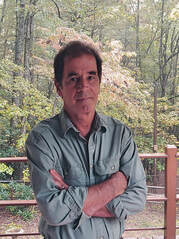
Grace Amidst Confusion: a review of Avalon, by Richard Jones (Green Linden Press, $16)
—by Michael Hettich
In this disjunct time, when cynicism and lies swarm the air like gnats, it’s a great solace to find a poet whose work is suffused with what can only be called love, a poet whose vision, though fully engaged with the fractures and griefs of this moment, is imbued with a sense of wonder, humor and compassion for all, including himself. Richard Jones has been writing such poems for many years. His numerous books published by Copper Canyon Press as well as stellar chapbooks from Adastra Press and other small publishers, to say nothing of his translations or of his work editing Poetry East, have distinguished him as one of our most valuable poets. His new book, Avalon, from Green Linden Press, is as strong as anything he has previously written, a work of great tenderness and vision.
Many of the poems in Avalon take the reader on spiritual journeys through realms of confusion and sorrow leading toward a sense that, somehow, amidst our existential bewilderment, the wonder of our very being holds transcendent truths we’ve yet to plumb, truths that might enthrall us were we to embrace them. A citizen of our time, Jones is nevertheless a kind of visionary, a poet who risks vulnerability to achieve the kind of innocence that makes revelation possible. His poems often start in the particulars of his own life to seamlessly move into fable-like narratives in which the ineffable is glimpsed, the unsayable (almost) whispered. And though what’s glimpsed eludes the speaker’s full grasp, nevertheless he knows it’s there, that moment out of time when the truth of each moment is revealed. In short, these poems simultaneously enact and document instances of grace, blessings in the midst of confusion:
I want the rain to tease open the seed
of my heart, to nourish the little flowers
of the mind, so they’ll blossom and grow…
So I go outside and the hard rain soaks me,
soaks me and blesses me down to the bone.
(“Rain”)
*
Then a blessing came from the fields
or the sky—it was all the same now--
and I gave myself over to the blizzard,
driving unhurriedly, listening to Vivaldi,
one hand on the wheel, relaxed, calm,
looking ahead and seeing nothing at all.
(“The Blizzard”)
The fact that he is willing to take the risk—of sentimentality and bathos--implicit in lines like these shows Jones as a poet of rare artistic courage: the courage to be open, tender and vulnerable without displaying one’s particular wounds or distancing oneself with cynical wit or contrived complexity. If in their forthright vulnerability these poems are anything but fashionable, many of them sing with the ache of lasting art. The best of them speak with the timeless truth of parable.
Jones has a beautifully-modulated ear; his clear, uncluttered free verse has the authority of good prose and the lyricism of classic blank verse:
Astronomy
The white-haired astronomer is walking
across the quad with his colleague, talking
about the universe, the unseen order of things
swirling to the farthest reaches of the cosmos.
His young colleague, a nuclear physicist,
recognizes the subatomic constituency of reality
and sees in the smallest neutron the truth
of his friend’s rhapsodies. They walk along--
talking, gesticulating, excited. People in love
should be so excited, eyes bright, full of genius
and madness, knowing they are on the right path,
they can feel it, they believe it, and more importantly,
they can prove it on a blackboard with a piece of chalk.
Though never “confessional” in the conventional sense of that word, all of Jones’s poems are deeply personal, exploring not regrets and losses but rather yearnings—for the deepest connections to his family, to the world, to himself and, finally, to his God: “a praying mantis/ lands on my left forearm, / turns his head, and studies me. / The spiritual way he folds/ his long green wings/ makes me believe he’s here/ on a heavenly mission…” (“Avalon”).
How many contemporary poets can write convincingly of grace, or of being blessed by the world’s very challenges and confusions? Our blessings, for Jones, are located exactly where our confusions and griefs most pain us as feeling, yearning, tender-hearted humans. Often that grace is provided by poetry itself:
Grace
The task of the poet is to provide poems
that will help people live, as city workers
sawing storm-downed trees into stove-length
chunks provide firewood we need to survive
another winter. For a winter will come when
we will have no fire, no home, a winter when
people will walk two or three long, cold miles
for a roof, a modest meal, a metal folding chair
on which to sleep. There will come a time we
will have to rely on men debating unwritten laws,
laws governing fortune and fate, where we live
or die. The senate will meet, people will be
wandering from shelter to shelter, there will be
referendum after referendum. In those days
people will need poems of joy and happiness,
poems at least as useful as wildflowers--
corn poppy, cosmos, and feverfew picked
from summer roadsides and placed in halls
on long tables where widows and orphans
bow their heads to give thanks before eating.
Such poetry as this is always nutritious food, but it is particularly so in these ravaged, profoundly confusing times. For those that read them carefully and with an open heart, the poems of Avalon will provide not just aesthetic pleasure but a kind of solace as well.
Michael Hettich’s most recent book of poems, To Start an Orchard, was published in September, 2019, by Press 53. A new book, The Mica Mine, won the Lena Schull Book Award from the North Carolina Poetry Society and will be published by St Andrews University Press in 2021.
—by Michael Hettich
In this disjunct time, when cynicism and lies swarm the air like gnats, it’s a great solace to find a poet whose work is suffused with what can only be called love, a poet whose vision, though fully engaged with the fractures and griefs of this moment, is imbued with a sense of wonder, humor and compassion for all, including himself. Richard Jones has been writing such poems for many years. His numerous books published by Copper Canyon Press as well as stellar chapbooks from Adastra Press and other small publishers, to say nothing of his translations or of his work editing Poetry East, have distinguished him as one of our most valuable poets. His new book, Avalon, from Green Linden Press, is as strong as anything he has previously written, a work of great tenderness and vision.
Many of the poems in Avalon take the reader on spiritual journeys through realms of confusion and sorrow leading toward a sense that, somehow, amidst our existential bewilderment, the wonder of our very being holds transcendent truths we’ve yet to plumb, truths that might enthrall us were we to embrace them. A citizen of our time, Jones is nevertheless a kind of visionary, a poet who risks vulnerability to achieve the kind of innocence that makes revelation possible. His poems often start in the particulars of his own life to seamlessly move into fable-like narratives in which the ineffable is glimpsed, the unsayable (almost) whispered. And though what’s glimpsed eludes the speaker’s full grasp, nevertheless he knows it’s there, that moment out of time when the truth of each moment is revealed. In short, these poems simultaneously enact and document instances of grace, blessings in the midst of confusion:
I want the rain to tease open the seed
of my heart, to nourish the little flowers
of the mind, so they’ll blossom and grow…
So I go outside and the hard rain soaks me,
soaks me and blesses me down to the bone.
(“Rain”)
*
Then a blessing came from the fields
or the sky—it was all the same now--
and I gave myself over to the blizzard,
driving unhurriedly, listening to Vivaldi,
one hand on the wheel, relaxed, calm,
looking ahead and seeing nothing at all.
(“The Blizzard”)
The fact that he is willing to take the risk—of sentimentality and bathos--implicit in lines like these shows Jones as a poet of rare artistic courage: the courage to be open, tender and vulnerable without displaying one’s particular wounds or distancing oneself with cynical wit or contrived complexity. If in their forthright vulnerability these poems are anything but fashionable, many of them sing with the ache of lasting art. The best of them speak with the timeless truth of parable.
Jones has a beautifully-modulated ear; his clear, uncluttered free verse has the authority of good prose and the lyricism of classic blank verse:
Astronomy
The white-haired astronomer is walking
across the quad with his colleague, talking
about the universe, the unseen order of things
swirling to the farthest reaches of the cosmos.
His young colleague, a nuclear physicist,
recognizes the subatomic constituency of reality
and sees in the smallest neutron the truth
of his friend’s rhapsodies. They walk along--
talking, gesticulating, excited. People in love
should be so excited, eyes bright, full of genius
and madness, knowing they are on the right path,
they can feel it, they believe it, and more importantly,
they can prove it on a blackboard with a piece of chalk.
Though never “confessional” in the conventional sense of that word, all of Jones’s poems are deeply personal, exploring not regrets and losses but rather yearnings—for the deepest connections to his family, to the world, to himself and, finally, to his God: “a praying mantis/ lands on my left forearm, / turns his head, and studies me. / The spiritual way he folds/ his long green wings/ makes me believe he’s here/ on a heavenly mission…” (“Avalon”).
How many contemporary poets can write convincingly of grace, or of being blessed by the world’s very challenges and confusions? Our blessings, for Jones, are located exactly where our confusions and griefs most pain us as feeling, yearning, tender-hearted humans. Often that grace is provided by poetry itself:
Grace
The task of the poet is to provide poems
that will help people live, as city workers
sawing storm-downed trees into stove-length
chunks provide firewood we need to survive
another winter. For a winter will come when
we will have no fire, no home, a winter when
people will walk two or three long, cold miles
for a roof, a modest meal, a metal folding chair
on which to sleep. There will come a time we
will have to rely on men debating unwritten laws,
laws governing fortune and fate, where we live
or die. The senate will meet, people will be
wandering from shelter to shelter, there will be
referendum after referendum. In those days
people will need poems of joy and happiness,
poems at least as useful as wildflowers--
corn poppy, cosmos, and feverfew picked
from summer roadsides and placed in halls
on long tables where widows and orphans
bow their heads to give thanks before eating.
Such poetry as this is always nutritious food, but it is particularly so in these ravaged, profoundly confusing times. For those that read them carefully and with an open heart, the poems of Avalon will provide not just aesthetic pleasure but a kind of solace as well.
Michael Hettich’s most recent book of poems, To Start an Orchard, was published in September, 2019, by Press 53. A new book, The Mica Mine, won the Lena Schull Book Award from the North Carolina Poetry Society and will be published by St Andrews University Press in 2021.
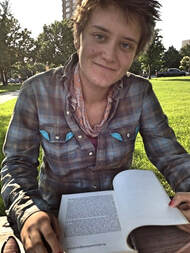
The Burning Where Breath Used to Be by Jen Karetnick
2020, David Robert Books
by Freesia McKee
“Or I could catalog our traumas, our long/list of overripe injustices,” the speaker offers in Jen Karetnick’s The Burning Where Breath Used to Be. “Storms/have mostly now to do with what we have/done, how much worse they get depending/on what—or who—we burn…This might take a while.”
In the late October of 2020, near what many of us hope is the end of the four-year blare of a spinning siren of hate, it can feel like those in power have been playing wack-a-mole with the populace. Who just got hit? Who will be next? The writer is at once a documenting witness and experiential participant, both implicated in and targeted by the harsh blows of power.
The Burning Where Breath Used to Be is about belonging. When do I fit? When am I left out? The speaker of these poems deals with (un)belonging as a daughter, a Jewish American woman surviving the Trump era, a teacher in charge of keeping the perils of the modern classroom at bay, and an artist observing the world. Karetnick also discusses the sense of (un)belonging in a body, that body each of us is given, that body which will inevitably fail us through genetics, aging, or other elements of fate.
A number of the poems in the book are direct cultural criticism, such as the arresting “What We Did”:
We did handstands and YOLO leaps at the Holocaust Centers.
We photo-bombed other tourists at the Holocaust Centers.
We fish-lipped into selfies at the Holocaust Centers…
Other poems pay keen attention to scientific language, especially genetics. I pulled out my dictionary more than once while reading this book to look up epigenesis, anthropogenesis, eukaryotic, gastroparesis, and more. Readers will wonder what they remember of high school biology class as they come to understand the cool role of this vocabulary in poems.
Not limited to one cultural well, Karetnick also invokes classic Americana. An ekphrastic poem addressed to Normal Rockwell’s iconic painting “Freedom From Want” invokes the “Irish maid” who’s depicted placing the opulent Thanksgiving turkey on the table while everyone is oblivious to her presence and her labor. What does she want? Why have I never wondered this?
Giving voice to women who are usually regarded as bystanders instead of central actors is a signature move in Karetnick’s work. These poems center the kid sister teased during a neighborhood game, the adult sister berated in the car over Bluetooth, the young professional sexually harassed by a colleague, the English teacher trying to make sense of a world in which high school students die. We see her, we hear her; she speaks to us.
In “Nobody Dies Because They Don’t Have Access to Health Care,” the title a direct quotation from a republican member of congress, Karetnick personifies “Nobody” in the spirit of Dickinson’s “I’m Nobody! Who are you?” The results are yet another effort to give voice to a woman.
…Nobody only pre-exists
before what is not likely
to be a grand exit
but the kind few
notice…
Karetnick is skilled at creating her own formal containers for poems. Her poems often provide readers with formal conceits that build the kind of reader-writer trust necessary to take on so many social issues in a single collection. I found myself willing to open every door Karetnick set up in front of me. Listing is also a signature move of this poet—she is obsessed with building her case through providing many examples so that we cannot help but sign onto the message of the poem. Using the litany, she is addressing power through language. She asks how we might use language to map power structures. She asks us to use language to find justice.
No matter what happens this fall, The Burning Where Breath Used to Be will be a sure bet for readers because it addresses concerns that extend beyond a single candidate or administration: gun violence, sexism, xenophobia, brutal arrogance, and how we can address risks and fears, our familiar strife, through language.
Freesia McKee is author of the chapbook How Distant the City (Headmistress Press, 2018). Her words have appeared in Flyway, Bone Bouquet, So to Speak, Tinderbox Poetry Journal, Virga, Painted Bride Quarterly, CALYX, About Place Journal, South Dakota Review, New Mexico Review, and the Ms. Magazine Blog. Freesia is a staff book reviewer for South Florida Poetry Journal. Her reviews have also appeared in Tupelo Quarterly, Pleiades Book Review, Gulf Stream, and The Drunken Odyssey. Freesia was the winner of CutBank Literary Journal’s 2018 Patricia Goedicke Prize in Poetry, chosen by Sarah Vap. She is also Guest Editor for SoFloPoJo's November 2020 issue.
Find her online at freesiamckee.com or on Twitter at @freesiamckee.
2020, David Robert Books
by Freesia McKee
“Or I could catalog our traumas, our long/list of overripe injustices,” the speaker offers in Jen Karetnick’s The Burning Where Breath Used to Be. “Storms/have mostly now to do with what we have/done, how much worse they get depending/on what—or who—we burn…This might take a while.”
In the late October of 2020, near what many of us hope is the end of the four-year blare of a spinning siren of hate, it can feel like those in power have been playing wack-a-mole with the populace. Who just got hit? Who will be next? The writer is at once a documenting witness and experiential participant, both implicated in and targeted by the harsh blows of power.
The Burning Where Breath Used to Be is about belonging. When do I fit? When am I left out? The speaker of these poems deals with (un)belonging as a daughter, a Jewish American woman surviving the Trump era, a teacher in charge of keeping the perils of the modern classroom at bay, and an artist observing the world. Karetnick also discusses the sense of (un)belonging in a body, that body each of us is given, that body which will inevitably fail us through genetics, aging, or other elements of fate.
A number of the poems in the book are direct cultural criticism, such as the arresting “What We Did”:
We did handstands and YOLO leaps at the Holocaust Centers.
We photo-bombed other tourists at the Holocaust Centers.
We fish-lipped into selfies at the Holocaust Centers…
Other poems pay keen attention to scientific language, especially genetics. I pulled out my dictionary more than once while reading this book to look up epigenesis, anthropogenesis, eukaryotic, gastroparesis, and more. Readers will wonder what they remember of high school biology class as they come to understand the cool role of this vocabulary in poems.
Not limited to one cultural well, Karetnick also invokes classic Americana. An ekphrastic poem addressed to Normal Rockwell’s iconic painting “Freedom From Want” invokes the “Irish maid” who’s depicted placing the opulent Thanksgiving turkey on the table while everyone is oblivious to her presence and her labor. What does she want? Why have I never wondered this?
Giving voice to women who are usually regarded as bystanders instead of central actors is a signature move in Karetnick’s work. These poems center the kid sister teased during a neighborhood game, the adult sister berated in the car over Bluetooth, the young professional sexually harassed by a colleague, the English teacher trying to make sense of a world in which high school students die. We see her, we hear her; she speaks to us.
In “Nobody Dies Because They Don’t Have Access to Health Care,” the title a direct quotation from a republican member of congress, Karetnick personifies “Nobody” in the spirit of Dickinson’s “I’m Nobody! Who are you?” The results are yet another effort to give voice to a woman.
…Nobody only pre-exists
before what is not likely
to be a grand exit
but the kind few
notice…
Karetnick is skilled at creating her own formal containers for poems. Her poems often provide readers with formal conceits that build the kind of reader-writer trust necessary to take on so many social issues in a single collection. I found myself willing to open every door Karetnick set up in front of me. Listing is also a signature move of this poet—she is obsessed with building her case through providing many examples so that we cannot help but sign onto the message of the poem. Using the litany, she is addressing power through language. She asks how we might use language to map power structures. She asks us to use language to find justice.
No matter what happens this fall, The Burning Where Breath Used to Be will be a sure bet for readers because it addresses concerns that extend beyond a single candidate or administration: gun violence, sexism, xenophobia, brutal arrogance, and how we can address risks and fears, our familiar strife, through language.
Freesia McKee is author of the chapbook How Distant the City (Headmistress Press, 2018). Her words have appeared in Flyway, Bone Bouquet, So to Speak, Tinderbox Poetry Journal, Virga, Painted Bride Quarterly, CALYX, About Place Journal, South Dakota Review, New Mexico Review, and the Ms. Magazine Blog. Freesia is a staff book reviewer for South Florida Poetry Journal. Her reviews have also appeared in Tupelo Quarterly, Pleiades Book Review, Gulf Stream, and The Drunken Odyssey. Freesia was the winner of CutBank Literary Journal’s 2018 Patricia Goedicke Prize in Poetry, chosen by Sarah Vap. She is also Guest Editor for SoFloPoJo's November 2020 issue.
Find her online at freesiamckee.com or on Twitter at @freesiamckee.
August 2020
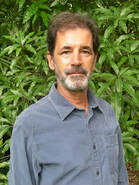
Of Love and Revelation: A Review of Bonfire Opera, by Danusha Lameris
(Pitt Poetry Series, 2020, $17)
—by Michael Hettich
Denusha Lameris’s Bonfire Opera, a book of surprising, deeply moving personal lyrics, is a stellar example of what’s best in contemporary mainstream American poetry. Published in the ever-more-impressive and various Pitt Poetry Series, the poems in this book are masterfully crafted, emotionally challenging, and accessible--capable of speaking powerfully to both poets and general readers alike. While her poems break no new ground, the news Lameris brings us is intimate, timely, and often profoundly revelatory.
Bonfire Opera is built mostly of short autobiographical lyrics in uncluttered, nicely modulated free verse; their revelations arise from the most ordinary of human experiences, often without any strain or histrionics:
“My arm is so brown and beautiful,” is a thought I have
as I’m about to turn off the lamp and go to sleep.
I look at it a moment in the soft glow, and see it, briefly,
as though it belonged to someone else...
(“O Darkness”)
Many of these poems reveal the ever-present magic embedded in ordinary life:
It was late afternoon and we were standing
on the deck overlooking the grey swath
of the Pacific, when my friends’ daughter,
then four, turned to me and pointed at the hawks
flying in the distance. I can call them if I want,
she said, tilting back her head to let out a long,
fierce caw which floated up over the marsh
and above the trees. At first, nothing. Then--
a slash in the distance...
(“Hawks”)
The clarity of cadence and diction here is characteristic of the poems in Bonfire Opera; this is poetry whose expert craft calls little attention to itself. And when Lameris delves into the almost unspeakable personal tragedies that have darkened her life, her self-effacing, understated art deepens our response:
No one wants to talk about the hilarity after death--
the way the week my brother shot himself,
his wife and I fell on the bed laughing
because she couldn’t decide what to wear for the big day,
and asked me, “Do I go for sexy or Amish?” I told her sexy.
And we rolled around on the mattress they’d shared
for eighteen years, clutching our sides...
(“Dressing for the Burial”)
In other poems, the very matter-of-factness in the simple understatement of grief moves us as lived experience does, in poems that feel like our own felt paths through the darkness:
Sometimes I can almost see him,
skinny legs, a striped shirt,
black hair tucked under a baseball cap.
He’s running through the backyard
with the other kids—my son--
chasing chickens, throwing a ball
against the fence...
(“Ghost Child”)
As the first of the above selections shows, Lameris is an expert in humor—not necessarily the kind that elicits laughter but instead that deeper species born of confusion and loss mixed with amazement at the world and the complexities of our human predicament. Her humor communicates a fully-earned consolation in the face of pain and suffering, a way of clearing a path for the soul’s journey forward. It is humor, certainly, but it’s more than simply that:
In those days, there was a woman in our circle
who was known, not only for her beauty,
but also for taking off all her clothes and singing opera.
And sure enough, as the night wore on and the stars
emerged to stare at their reflection in the sea,
and everyone had drunk a little wine,
she began to disrobe, lose her great bosom
and the tender belly, pale in the moonlight,
the Viking hips, and to let her torn raiment
fall to the sand as we looked up from the flames...
(“Bonfire Opera)
If some of the volume’s later poems strain a bit mechanically toward their insights, still this is a book that matters, full of poems that give pleasure and move us, poems of authentic need and craft. Finally, despite the profundity of grief at its core, Bonfire Opera is a book of affirmation: This poetry reminds us that life aches with beauty; each day is potent with small miracles, if we open our eyes and hearts to them. The best poems here are vehicles to that opening:
I lie on the ground and let the sun fall across my back,
as I’ve been doing for the past hour, listening to the distant traffic,
to the call of birds I cannot name. Once, there was so much
I thought I needed. Now, all I know is that I want
to get closer to it: the rocky slope, the orange petals
of the nasturtium adorning the fence, the wind’s sudden breath.
Close enough that I can almost feel, at night, the slight pressure
of the stars against my skin...
(“Stone”)
Truly words to live by in these troubled, disjointed times.
Michael Hettich’s most recent book of poems, To Start an Orchard, was published in 2019.
(Pitt Poetry Series, 2020, $17)
—by Michael Hettich
Denusha Lameris’s Bonfire Opera, a book of surprising, deeply moving personal lyrics, is a stellar example of what’s best in contemporary mainstream American poetry. Published in the ever-more-impressive and various Pitt Poetry Series, the poems in this book are masterfully crafted, emotionally challenging, and accessible--capable of speaking powerfully to both poets and general readers alike. While her poems break no new ground, the news Lameris brings us is intimate, timely, and often profoundly revelatory.
Bonfire Opera is built mostly of short autobiographical lyrics in uncluttered, nicely modulated free verse; their revelations arise from the most ordinary of human experiences, often without any strain or histrionics:
“My arm is so brown and beautiful,” is a thought I have
as I’m about to turn off the lamp and go to sleep.
I look at it a moment in the soft glow, and see it, briefly,
as though it belonged to someone else...
(“O Darkness”)
Many of these poems reveal the ever-present magic embedded in ordinary life:
It was late afternoon and we were standing
on the deck overlooking the grey swath
of the Pacific, when my friends’ daughter,
then four, turned to me and pointed at the hawks
flying in the distance. I can call them if I want,
she said, tilting back her head to let out a long,
fierce caw which floated up over the marsh
and above the trees. At first, nothing. Then--
a slash in the distance...
(“Hawks”)
The clarity of cadence and diction here is characteristic of the poems in Bonfire Opera; this is poetry whose expert craft calls little attention to itself. And when Lameris delves into the almost unspeakable personal tragedies that have darkened her life, her self-effacing, understated art deepens our response:
No one wants to talk about the hilarity after death--
the way the week my brother shot himself,
his wife and I fell on the bed laughing
because she couldn’t decide what to wear for the big day,
and asked me, “Do I go for sexy or Amish?” I told her sexy.
And we rolled around on the mattress they’d shared
for eighteen years, clutching our sides...
(“Dressing for the Burial”)
In other poems, the very matter-of-factness in the simple understatement of grief moves us as lived experience does, in poems that feel like our own felt paths through the darkness:
Sometimes I can almost see him,
skinny legs, a striped shirt,
black hair tucked under a baseball cap.
He’s running through the backyard
with the other kids—my son--
chasing chickens, throwing a ball
against the fence...
(“Ghost Child”)
As the first of the above selections shows, Lameris is an expert in humor—not necessarily the kind that elicits laughter but instead that deeper species born of confusion and loss mixed with amazement at the world and the complexities of our human predicament. Her humor communicates a fully-earned consolation in the face of pain and suffering, a way of clearing a path for the soul’s journey forward. It is humor, certainly, but it’s more than simply that:
In those days, there was a woman in our circle
who was known, not only for her beauty,
but also for taking off all her clothes and singing opera.
And sure enough, as the night wore on and the stars
emerged to stare at their reflection in the sea,
and everyone had drunk a little wine,
she began to disrobe, lose her great bosom
and the tender belly, pale in the moonlight,
the Viking hips, and to let her torn raiment
fall to the sand as we looked up from the flames...
(“Bonfire Opera)
If some of the volume’s later poems strain a bit mechanically toward their insights, still this is a book that matters, full of poems that give pleasure and move us, poems of authentic need and craft. Finally, despite the profundity of grief at its core, Bonfire Opera is a book of affirmation: This poetry reminds us that life aches with beauty; each day is potent with small miracles, if we open our eyes and hearts to them. The best poems here are vehicles to that opening:
I lie on the ground and let the sun fall across my back,
as I’ve been doing for the past hour, listening to the distant traffic,
to the call of birds I cannot name. Once, there was so much
I thought I needed. Now, all I know is that I want
to get closer to it: the rocky slope, the orange petals
of the nasturtium adorning the fence, the wind’s sudden breath.
Close enough that I can almost feel, at night, the slight pressure
of the stars against my skin...
(“Stone”)
Truly words to live by in these troubled, disjointed times.
Michael Hettich’s most recent book of poems, To Start an Orchard, was published in 2019.
Guest Reviews

Obscura by Frank Paino Orison Books $16.00
Poems In a Dark Time
by Deborah DeNicola
Amidst the global threat of COVID19, what many have deemed a “dark time,” I recently discovered a book of poems by a man who surrenders his imagination into a total submergence into dark but astonishing material. Frank Paino’s latest book, his third collection of poems, is titled Obscura, a word whose meaning, among other definitions is “a dark chamber with a lens through which an image is projected.“ One thinks of 19th century photography. And perhaps, the word “concealed,” a derivative of “obscure,” applies as well, since the poet reminds and reveals to us story after story of many lost or forgotten moments in history where some tragic, fascinating or horrifying event occurred.
Just a quick glimpse into the table of contents invites us to shine a flashlight in these dark corners of obscurity, and assures us of a deep dive into one poet’s obsessive scrutiny of subject matter we might otherwise try to avoid—These are poems of mummification, stake burnings, suicides by drowning and jumping, Edison’s death, Houdini’s Ghost, a Recording Angel, a dog sent into space, taxidermy, taxonomy, abused animals, among others—even a tapeworm in the belly of Maria Callas! As well as demons, devils, hell, Lucifer and Armageddon . . .
This splendid and ghoulish array of lyrical narratives draws us into Paino’s twilit world the way the telling of scary stories attracted us around campfires when we were kids. But there is nothing to scream about, only a mind to be blown by his stunning gift of imagery that causes us to marvel. I will admit the poems sent me to Google and Wikipedia where I could verify their astonishing veracity. He knows his facts as well as his myths and renders them in a lyricism so naturally seductive, our appetite for darkness grows “curiouser and curiouser” as we turn each page.
Paino’s image-making is startling, for example, the poem “Plunder,” which is introduced with an epigraph of a “Victorian Mummy Unwrapping Party Invitation,” sets its stage in an enticing environment of match tips flaring sulfur, “candlewicks” and “Egyptian amulets” in a brocaded drawing room with “the scent of amber resin” “buffed mahogany” and “palm wine . . . sweet and primitive as lust . . .” Here women in too-tight corsets hover to peer at the unveiled thing “black as delta mud” or a concealed figure we can imagine crumbling to “biblical dust.” This gathering ends with those same women who “leaned so near/death they could kiss it” heading home to ready themselves for their lovers, to “open themselves/ . . . like long-hidden tombs that glisten/and beckon for plunder.”
Two poems with the theme of “falling” reinforce the themes of not only heartbreaking destruction but the seemingly casual normality of deliberate acts. In “Falling” we’re told in 1827 the owner of a hotel in Niagara sent live animals in a schooner over the falls while a crowd of brides, grooms, and assorted tourists observed and applauded. Those in the well-dressed crowd “cheer as the keel screams over upthrust/boulders,” and a fox blurs into “white turbulence” then is gone into an “airless fate,” the boat itself becoming “ripped timbers” as chained creatures meet the rocks below. The poet shows the brute cruelty in all its spectacle by a series of speculating questions--what if the buffalo, raccoon , lioness or bear—might have mauled the hotelier rather than find themselves caged in this “reverse Noah’s arc” as “startled/ freight over the lip of eternity.”
And in a kind of elegy, Paino honors the famous photograph by Robert Wiles of a young bookkeeper who in 1947 threw herself off the 86th floor of the Empire State Building. Time Magazine named her “The Most Beautiful Suicide” and Paino has created a litany for the day of her fall. Attuned to the anaphora of the poet’s structure, we follow her in “rose dress & makeup” entering the “Empire’s lobby/ with its strata of gold” into the elevator and onto the deck where she would “fold her tan coat just so” until the moment she will “step off the ledge as if/beneath each scapula/she feels the itch of wings,” down to her journey from the sky “that cannot hold her” where she lands with one shoe among “each pedestrian gaze” as “glass & steel become/her catafalque.” But it is in the last words of the poem that we share the sin of our morbid surveillance when we wish to “be absolved for finding beauty/ in such broken truth/ . . . powerless to turn away.” Indeed—the photograph, which I looked up, shows an astonishing peace in the body’s posture as she lands on the roof of a limousine, missing one shoe, her hand on her pearls while supine, she lies in a bed of glass.
The majority of these poems about true incidents relay empathy on the poet’s part. There are several ekphrastic pieces as well as re-imaginings. Paino describes Mata Hari, shot as a spy in the Vincennes woods in 1945 dressed in her signature clothing right down to the “tricorn hat, the color of /deep bruises, atop raven hair . . .” She fastens “each pearl button/on her ankle-high boots” and “scorns both bond/and blindfold . . .”
The scene is brought to life in such a way that we understand how this woman lived her eccentric life and died with the same wild courage blowing “a ruby kiss” to her firing squad.
The sheer range of topics draws us into these truly beautiful and amazing poems. Although he claims to have no allegiance to a God, Paino is interested in ontology, the nature of being. In “Taxonomy,” Adam, who names himself and grows weary of naming the animals, finds “After a while, all the whiles/congealed like blood” and his loneliness is answered when “a fist /like iron enter{s} his side” and Eve “bloom{s}” into existence. By the end of the poem however, the couple escapes the withered garden “having rolled/the thing they named freedom/across their tongues” finding “it sweet/Like spoonfuls of milk and honey.”
And the poem “Cephalophores” is like something out of Dante’s Inferno, a parade of decapitated saints carrying their heads in their hands, their “grisly freight held up/like a child’s first lost tooth.” In “The Astronomer” on Vermeer’s painting, the scientist “leans toward the celestial globe,” observing the constellations as “perhaps some diety’s/brilliant arithmetic that breathed life into the skies.” And in “Armageddon” the mythical patterns of the stars begin to tumble so that “Orion’s club is poised above some lesser beast/and the jeweled dippers are honed to demitasse . . .”
In one of my favorites, a defense, dedicated “To Lucifer,” the poet is concerned with the familiar fall of the rebellious angel to be “crushed under the heel of Michael,/the heel of Mary, and made to twist/along your shingled belly . . .” Paino claims that the dark angel offered humankind, another type of freedom similar to the legacy of Genesis, “the gift/of agency,/which granted us choice—"
Overall, this book stands out as an important testament to—and imaginative witnessing of—the miraculous. If you haven’t found a recent book of poetry that pushes the edges of language and insight while lighting up the dark, you must get your hands on a copy of Frank Paino’s Obscura.
Deborah DeNicola has authored two poetry collections, Original Human, and Where Divinity Begins and her memoir The Future That Brought Her Here. (Nicholas Hays/Ibis Press 2009) Deborah compiled and edited Orpheus & Company; Contemporary Poems on Greek Mythology (University Press of New England 1999). Among other awards, she has been a recipient of a National Endowment Fellowship.
Poems In a Dark Time
by Deborah DeNicola
Amidst the global threat of COVID19, what many have deemed a “dark time,” I recently discovered a book of poems by a man who surrenders his imagination into a total submergence into dark but astonishing material. Frank Paino’s latest book, his third collection of poems, is titled Obscura, a word whose meaning, among other definitions is “a dark chamber with a lens through which an image is projected.“ One thinks of 19th century photography. And perhaps, the word “concealed,” a derivative of “obscure,” applies as well, since the poet reminds and reveals to us story after story of many lost or forgotten moments in history where some tragic, fascinating or horrifying event occurred.
Just a quick glimpse into the table of contents invites us to shine a flashlight in these dark corners of obscurity, and assures us of a deep dive into one poet’s obsessive scrutiny of subject matter we might otherwise try to avoid—These are poems of mummification, stake burnings, suicides by drowning and jumping, Edison’s death, Houdini’s Ghost, a Recording Angel, a dog sent into space, taxidermy, taxonomy, abused animals, among others—even a tapeworm in the belly of Maria Callas! As well as demons, devils, hell, Lucifer and Armageddon . . .
This splendid and ghoulish array of lyrical narratives draws us into Paino’s twilit world the way the telling of scary stories attracted us around campfires when we were kids. But there is nothing to scream about, only a mind to be blown by his stunning gift of imagery that causes us to marvel. I will admit the poems sent me to Google and Wikipedia where I could verify their astonishing veracity. He knows his facts as well as his myths and renders them in a lyricism so naturally seductive, our appetite for darkness grows “curiouser and curiouser” as we turn each page.
Paino’s image-making is startling, for example, the poem “Plunder,” which is introduced with an epigraph of a “Victorian Mummy Unwrapping Party Invitation,” sets its stage in an enticing environment of match tips flaring sulfur, “candlewicks” and “Egyptian amulets” in a brocaded drawing room with “the scent of amber resin” “buffed mahogany” and “palm wine . . . sweet and primitive as lust . . .” Here women in too-tight corsets hover to peer at the unveiled thing “black as delta mud” or a concealed figure we can imagine crumbling to “biblical dust.” This gathering ends with those same women who “leaned so near/death they could kiss it” heading home to ready themselves for their lovers, to “open themselves/ . . . like long-hidden tombs that glisten/and beckon for plunder.”
Two poems with the theme of “falling” reinforce the themes of not only heartbreaking destruction but the seemingly casual normality of deliberate acts. In “Falling” we’re told in 1827 the owner of a hotel in Niagara sent live animals in a schooner over the falls while a crowd of brides, grooms, and assorted tourists observed and applauded. Those in the well-dressed crowd “cheer as the keel screams over upthrust/boulders,” and a fox blurs into “white turbulence” then is gone into an “airless fate,” the boat itself becoming “ripped timbers” as chained creatures meet the rocks below. The poet shows the brute cruelty in all its spectacle by a series of speculating questions--what if the buffalo, raccoon , lioness or bear—might have mauled the hotelier rather than find themselves caged in this “reverse Noah’s arc” as “startled/ freight over the lip of eternity.”
And in a kind of elegy, Paino honors the famous photograph by Robert Wiles of a young bookkeeper who in 1947 threw herself off the 86th floor of the Empire State Building. Time Magazine named her “The Most Beautiful Suicide” and Paino has created a litany for the day of her fall. Attuned to the anaphora of the poet’s structure, we follow her in “rose dress & makeup” entering the “Empire’s lobby/ with its strata of gold” into the elevator and onto the deck where she would “fold her tan coat just so” until the moment she will “step off the ledge as if/beneath each scapula/she feels the itch of wings,” down to her journey from the sky “that cannot hold her” where she lands with one shoe among “each pedestrian gaze” as “glass & steel become/her catafalque.” But it is in the last words of the poem that we share the sin of our morbid surveillance when we wish to “be absolved for finding beauty/ in such broken truth/ . . . powerless to turn away.” Indeed—the photograph, which I looked up, shows an astonishing peace in the body’s posture as she lands on the roof of a limousine, missing one shoe, her hand on her pearls while supine, she lies in a bed of glass.
The majority of these poems about true incidents relay empathy on the poet’s part. There are several ekphrastic pieces as well as re-imaginings. Paino describes Mata Hari, shot as a spy in the Vincennes woods in 1945 dressed in her signature clothing right down to the “tricorn hat, the color of /deep bruises, atop raven hair . . .” She fastens “each pearl button/on her ankle-high boots” and “scorns both bond/and blindfold . . .”
The scene is brought to life in such a way that we understand how this woman lived her eccentric life and died with the same wild courage blowing “a ruby kiss” to her firing squad.
The sheer range of topics draws us into these truly beautiful and amazing poems. Although he claims to have no allegiance to a God, Paino is interested in ontology, the nature of being. In “Taxonomy,” Adam, who names himself and grows weary of naming the animals, finds “After a while, all the whiles/congealed like blood” and his loneliness is answered when “a fist /like iron enter{s} his side” and Eve “bloom{s}” into existence. By the end of the poem however, the couple escapes the withered garden “having rolled/the thing they named freedom/across their tongues” finding “it sweet/Like spoonfuls of milk and honey.”
And the poem “Cephalophores” is like something out of Dante’s Inferno, a parade of decapitated saints carrying their heads in their hands, their “grisly freight held up/like a child’s first lost tooth.” In “The Astronomer” on Vermeer’s painting, the scientist “leans toward the celestial globe,” observing the constellations as “perhaps some diety’s/brilliant arithmetic that breathed life into the skies.” And in “Armageddon” the mythical patterns of the stars begin to tumble so that “Orion’s club is poised above some lesser beast/and the jeweled dippers are honed to demitasse . . .”
In one of my favorites, a defense, dedicated “To Lucifer,” the poet is concerned with the familiar fall of the rebellious angel to be “crushed under the heel of Michael,/the heel of Mary, and made to twist/along your shingled belly . . .” Paino claims that the dark angel offered humankind, another type of freedom similar to the legacy of Genesis, “the gift/of agency,/which granted us choice—"
Overall, this book stands out as an important testament to—and imaginative witnessing of—the miraculous. If you haven’t found a recent book of poetry that pushes the edges of language and insight while lighting up the dark, you must get your hands on a copy of Frank Paino’s Obscura.
Deborah DeNicola has authored two poetry collections, Original Human, and Where Divinity Begins and her memoir The Future That Brought Her Here. (Nicholas Hays/Ibis Press 2009) Deborah compiled and edited Orpheus & Company; Contemporary Poems on Greek Mythology (University Press of New England 1999). Among other awards, she has been a recipient of a National Endowment Fellowship.
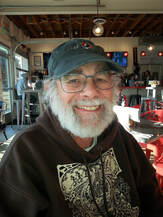
Shades & Graces—Michael Salcman, Spuyten Duyvil Publishing
(June 1, 2020) ISPN-10: 195241914X ISBN-13: 978-1952419140, 110 pages
by Robert Cooperman
Michael Salcman’s latest collection, Shades & Graces, winner of Spuyten Duyvil’s inaugural Daniel Hoffman Legacy Book Prize, is a wondrous work, combining his love of poetry, music, and art, along with his years as a brain surgeon, and finally his love for family. Salcman’s interests are legion, from classical music to jazz, from high art to playing pinball as a kid, from the freedom of sailing in Chesapeake Bay to cataloging all the things that can go wrong in a surgical theater.
Indeed, it’s this knowledge that all medical fixes are temporary that creates the dominant mood in this collection, it’s minor key sense of elegy, of loss, of remembrance of things past and gone: parents, poetry mentors and friends, even an old Baltimore neighborhood, as in “Howard Street Rhapsody,” which reads more like an elegy than the more exuberant musical form. As Salcman takes us for a stroll along Howard Street, he points out various once vibrant businesses that are gone and the empty storefronts with their boarded up windows, antique stores decamped, as well as antiquarian bookstores. Yes, far more a lament than a rhapsody, and he concludes with these lines:
Howard dead ends at Johns’ Hopkins and Museum Drive,
in a neighborhood without neon or signs, music or poetry,
a jazz-free leafy Eden without words or rhymes,
without poems written by the unknown many,
when every man was an Adam and the city Eve.
I find it interesting and telling that Salcman concludes the poem with a glimpse of prelapsarian Eden, as a way to contrast the street now, after its glory days. But also interesting is the music of his lines, especially his internal slant rhymes of “signs” and “rhymes.” And then there’s the wonderful assonance of “leafy” and “Eden.” An altogether bravura performance.
But even more than concrete, cement, and wood, it’s people whom Salcman grieves and misses, and no more so than in the longest poem in the collection and its heart, “Father Sleeping.” Here, Salcman remembers his 99-year-old father’s last days, his decline and leave taking. But more than just an elegy, the poem is also a mini medical dissertation on the shape and function of the “locus coerulus,” “the blue spot in the brain/where a bright dot of pigment controls our mortal waking”. I confess, the medical jargon used had me scratching my head, but I’m guessing that was intentional on Salcman’s part, the locus coerulus, and all that adversely affect it, becoming a metaphor for life ebbing away, though this is only a guess on my part. But the non-technical, non-medical prose parts of this poem are incredibly moving:
The legends say no tears for the dying
lest you impede them on their way to heaven,
my eyes so dry at your bedside they cancel my yearning
that you stay.
Salcman chronicles his father’s condition, “…he lies beyond distress…not yet oblivious to his rapid decline/nor fooled by our hopes for recovery.” Here, Salcman shows himself both the loving, caring, dutiful son, but also the trained medical professional, knowing not to give himself false hopes that this isn’t the end of a long, loving road. And though his father seems not to be in great physical pain, there are the emotional, psychological hurts: the Shoah years of hiding from the Nazis, the growing mental confusion of the present, which Salcman puts this way: “My father at night is not the same man I know by day,/his inner Kurz comes out in a shadow land of foreign shores/and prisons.” I love that reference to Kurz, the crazed and dying anti-hero/villain of Conrad’s diatribe against colonialism, Heart of Darkness.
There’s also the sense in this poem that Salcman is juggling the highly technical medical jargon (that gives me too much of a headache to reproduce samples of) with a tradition other than our Western, rational one. The poet makes reference to other cultures in which “people sleep on floor-bound mats.” He calls his dying father “a Polynesian now, afraid of…the lie down and die model,” so he “…drifts in and out of slumber/gets up to dance or sing or stays on guard.” The poem’s penultimate prose lines are on the function of the locus coerulus and how its neurons are lost to Alzheimer’s Disease, and then concludes with these lines that remind me of the last lines of W.B. Yeats’s final poem, “Under Ben Bulben”: “Cast a cold eye on life,/On death,/Horsemen pass by.” But here, it’s “Death or its simulacrum:/the L.C. blue eye of the brain--/my father’s hurricane.”
But lest you think this collection is entirely taken over by a sense of loss, there are some lovely, witty, even very, very funny poems, my favorite of these being, “When Bach Was Street.” This is a kind of pop biography of the magisterial composer’s earlier, authority flouting years, when he “had pimples and hormones and undiffused anger,” and apparently did what he wanted, when he wanted, such as:
Bach often went absent without leave,
like the time he asked for a month
to visit Buxtehude in Lubeck
and took three to walk there and back.”
Alas, in a bit of dramatic/historical irony, Bach never did meet his organ playing and composing idol, for Buxtehude had died in the interim. Salcman makes the connection that even a great classical composer can be a rebel, in comparing Bach’s innovations to music to the jazz great, John Coltrane, who also turned the musical world on its head by inventing a new style of improv. And the poem concludes with this great little line, “That man was phat.”
Shades & Graces makes a fine addition to Salcman’s already terrific oeuvre. This is a collection to savor, to let it play with the mind and the heart, at once appealing to the intellect and to the heart and senses, poems to make you laugh, even as a lot of them will make you cry. But either way, you’ll to read them again and again.
Robert Cooperman's latest collection is THE GHOSTS AND BONES OF TROY (Kelsay Books). Forthcoming from Finishing Line Press is ALL OUR FARE-THEE-WELLS, a love letter to the Grateful Dead. Cooperman lives in Denver with his wife Beth.
(June 1, 2020) ISPN-10: 195241914X ISBN-13: 978-1952419140, 110 pages
by Robert Cooperman
Michael Salcman’s latest collection, Shades & Graces, winner of Spuyten Duyvil’s inaugural Daniel Hoffman Legacy Book Prize, is a wondrous work, combining his love of poetry, music, and art, along with his years as a brain surgeon, and finally his love for family. Salcman’s interests are legion, from classical music to jazz, from high art to playing pinball as a kid, from the freedom of sailing in Chesapeake Bay to cataloging all the things that can go wrong in a surgical theater.
Indeed, it’s this knowledge that all medical fixes are temporary that creates the dominant mood in this collection, it’s minor key sense of elegy, of loss, of remembrance of things past and gone: parents, poetry mentors and friends, even an old Baltimore neighborhood, as in “Howard Street Rhapsody,” which reads more like an elegy than the more exuberant musical form. As Salcman takes us for a stroll along Howard Street, he points out various once vibrant businesses that are gone and the empty storefronts with their boarded up windows, antique stores decamped, as well as antiquarian bookstores. Yes, far more a lament than a rhapsody, and he concludes with these lines:
Howard dead ends at Johns’ Hopkins and Museum Drive,
in a neighborhood without neon or signs, music or poetry,
a jazz-free leafy Eden without words or rhymes,
without poems written by the unknown many,
when every man was an Adam and the city Eve.
I find it interesting and telling that Salcman concludes the poem with a glimpse of prelapsarian Eden, as a way to contrast the street now, after its glory days. But also interesting is the music of his lines, especially his internal slant rhymes of “signs” and “rhymes.” And then there’s the wonderful assonance of “leafy” and “Eden.” An altogether bravura performance.
But even more than concrete, cement, and wood, it’s people whom Salcman grieves and misses, and no more so than in the longest poem in the collection and its heart, “Father Sleeping.” Here, Salcman remembers his 99-year-old father’s last days, his decline and leave taking. But more than just an elegy, the poem is also a mini medical dissertation on the shape and function of the “locus coerulus,” “the blue spot in the brain/where a bright dot of pigment controls our mortal waking”. I confess, the medical jargon used had me scratching my head, but I’m guessing that was intentional on Salcman’s part, the locus coerulus, and all that adversely affect it, becoming a metaphor for life ebbing away, though this is only a guess on my part. But the non-technical, non-medical prose parts of this poem are incredibly moving:
The legends say no tears for the dying
lest you impede them on their way to heaven,
my eyes so dry at your bedside they cancel my yearning
that you stay.
Salcman chronicles his father’s condition, “…he lies beyond distress…not yet oblivious to his rapid decline/nor fooled by our hopes for recovery.” Here, Salcman shows himself both the loving, caring, dutiful son, but also the trained medical professional, knowing not to give himself false hopes that this isn’t the end of a long, loving road. And though his father seems not to be in great physical pain, there are the emotional, psychological hurts: the Shoah years of hiding from the Nazis, the growing mental confusion of the present, which Salcman puts this way: “My father at night is not the same man I know by day,/his inner Kurz comes out in a shadow land of foreign shores/and prisons.” I love that reference to Kurz, the crazed and dying anti-hero/villain of Conrad’s diatribe against colonialism, Heart of Darkness.
There’s also the sense in this poem that Salcman is juggling the highly technical medical jargon (that gives me too much of a headache to reproduce samples of) with a tradition other than our Western, rational one. The poet makes reference to other cultures in which “people sleep on floor-bound mats.” He calls his dying father “a Polynesian now, afraid of…the lie down and die model,” so he “…drifts in and out of slumber/gets up to dance or sing or stays on guard.” The poem’s penultimate prose lines are on the function of the locus coerulus and how its neurons are lost to Alzheimer’s Disease, and then concludes with these lines that remind me of the last lines of W.B. Yeats’s final poem, “Under Ben Bulben”: “Cast a cold eye on life,/On death,/Horsemen pass by.” But here, it’s “Death or its simulacrum:/the L.C. blue eye of the brain--/my father’s hurricane.”
But lest you think this collection is entirely taken over by a sense of loss, there are some lovely, witty, even very, very funny poems, my favorite of these being, “When Bach Was Street.” This is a kind of pop biography of the magisterial composer’s earlier, authority flouting years, when he “had pimples and hormones and undiffused anger,” and apparently did what he wanted, when he wanted, such as:
Bach often went absent without leave,
like the time he asked for a month
to visit Buxtehude in Lubeck
and took three to walk there and back.”
Alas, in a bit of dramatic/historical irony, Bach never did meet his organ playing and composing idol, for Buxtehude had died in the interim. Salcman makes the connection that even a great classical composer can be a rebel, in comparing Bach’s innovations to music to the jazz great, John Coltrane, who also turned the musical world on its head by inventing a new style of improv. And the poem concludes with this great little line, “That man was phat.”
Shades & Graces makes a fine addition to Salcman’s already terrific oeuvre. This is a collection to savor, to let it play with the mind and the heart, at once appealing to the intellect and to the heart and senses, poems to make you laugh, even as a lot of them will make you cry. But either way, you’ll to read them again and again.
Robert Cooperman's latest collection is THE GHOSTS AND BONES OF TROY (Kelsay Books). Forthcoming from Finishing Line Press is ALL OUR FARE-THEE-WELLS, a love letter to the Grateful Dead. Cooperman lives in Denver with his wife Beth.
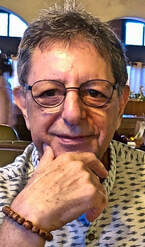
Tony Gloeggler’s What Kind of Man
(New York Quarterly Books, 2020)
by Michael Minassian
Tony Gloeggler’s collection of poems opens with “This Kind of Room” and expresses what we all seem to want: to be young again. But there’s always a catch: the pleasure and pain of life. Throughout this impressive selection of narrative poems, those emotions and the fleeting present flash by in a complex and honest look at what it means to be a man (or woman). That’s exactly what the reader is about to find out as Gloeggler writes about existence in all its messiness, joy, despair, loss, illness, and love in his new collection What Kind of Man.
There’s an aching awareness of love and how it can nourish and elude us, whether dealing with personal or professional relationships, passing acquaintances or complete strangers.
Family also looms large as the stories reveal both compassion and loss. We may not always want to face hard truths, but in his poems, Gloeggler lays them bare for the reader to see, savor, and perhaps learn to face without fear. Rooted in the neighborhoods of New York City the poems manage to turn and twist in surprising and satisfying ways, as if they suddenly turn down a narrow and unfamiliar street.
Reading the poems, you will be reminded of the poet’s own struggles with illness, loss, and regrets, while showing a great capacity for love and compassion for others in dealing with their individual struggles with pain, disappointment, and in some cases disabilities.
In an early series of poems, “Renal Sonogram,” “Dialysis Shuffle,” and “A Little Music” the narrator speaks about the numbing nature of waiting for dialysis as one lab tech gives instructions in a monotone. The patients are mainly men, older, and black: “more worse off than me” as he fits on headphones and recounts his playlist, a commentary of those “music moments” in his life: girls, cars, Coney Island. “A Little Music” has the narrator riffing on another technician whose son was killed and how he shares his headphones with her, leading to the lovely image at the end of the poem as she listens to the music.
Gloeggler’s poems should probably be read while listening to the songs he mentions along the way, a fitting companion or soundtrack as a reminder that music and our lives are intertwined. One of my favorite poems in this section of the book is “Legacy,” an honest and touching look at the memory of his father: how we can miss a person yet not grieve, and the narrator’s realization that he is more like his father than anyone else in the family. Another poem, “Family,” starts by musing on relationships, as the poet fantasizes about being adopted “they took you in,/looked at you as a gift or burden/from god and did their best/to nurture you, torture you/in the name of family.” The poem then skillfully segues to health issues and the kidney transplant that provides an arc throughout the book. Other poems look at the things we take for granted as the poet turns his discerning eye outward to take in the Post Office, neighborhood kids, a wedding, and the Death of John Lennon to name a few.
There’s a vulnerability and tenderness in the poems, even as old, painful memories surface, scorching the page, and the imprint of old loves erupt out of the poem when you least expect it. In “Last Love Poem” the narrator speaks about the memory of a mugging and the bringing down of the Twin Towers and how life somehow, slowly goes back to something like normal, then in the last stanza recalls the memory of a former love gone too over thirty years and how he still yearns for “the one woman I never stopped loving.”
My favorite poem in the collection, one which I never tire of reading is “Crying” – as the narrator, riding in the NYC subway, sees a “well dressed black man across the car/crying quietly,” then watches the reactions of the other passengers. It’s a poem that forces you to take a look at your own humanity, broken hearts and memories, and how we do or don’t comfort each other. In the last stanza we read “all day that man’s tears stay with me” as the speaker describes the end of a relationship and how he “tried not to cry when she decided/she was better off, happier without me.” Loneliness or heartbreak, in the present moment, in the past, can touch us all.
The poems in What Kind of Man let us see the poet’s response to the world around him, and his own pain, joy, and regrets. How do any of us face the truths that are handed to us: with grace or do we turn away and pretend they are not there? Gloeggler allows the reader to enter the poem and experience place and sensations for themselves, holding up a mirror to our own lives. You will want to read these poems and then read them again.
Michael Minassian’s most recent book of poems Time is Not a River (2020) is available on Amazon. His website is: https://michaelminassian.com
(New York Quarterly Books, 2020)
by Michael Minassian
Tony Gloeggler’s collection of poems opens with “This Kind of Room” and expresses what we all seem to want: to be young again. But there’s always a catch: the pleasure and pain of life. Throughout this impressive selection of narrative poems, those emotions and the fleeting present flash by in a complex and honest look at what it means to be a man (or woman). That’s exactly what the reader is about to find out as Gloeggler writes about existence in all its messiness, joy, despair, loss, illness, and love in his new collection What Kind of Man.
There’s an aching awareness of love and how it can nourish and elude us, whether dealing with personal or professional relationships, passing acquaintances or complete strangers.
Family also looms large as the stories reveal both compassion and loss. We may not always want to face hard truths, but in his poems, Gloeggler lays them bare for the reader to see, savor, and perhaps learn to face without fear. Rooted in the neighborhoods of New York City the poems manage to turn and twist in surprising and satisfying ways, as if they suddenly turn down a narrow and unfamiliar street.
Reading the poems, you will be reminded of the poet’s own struggles with illness, loss, and regrets, while showing a great capacity for love and compassion for others in dealing with their individual struggles with pain, disappointment, and in some cases disabilities.
In an early series of poems, “Renal Sonogram,” “Dialysis Shuffle,” and “A Little Music” the narrator speaks about the numbing nature of waiting for dialysis as one lab tech gives instructions in a monotone. The patients are mainly men, older, and black: “more worse off than me” as he fits on headphones and recounts his playlist, a commentary of those “music moments” in his life: girls, cars, Coney Island. “A Little Music” has the narrator riffing on another technician whose son was killed and how he shares his headphones with her, leading to the lovely image at the end of the poem as she listens to the music.
Gloeggler’s poems should probably be read while listening to the songs he mentions along the way, a fitting companion or soundtrack as a reminder that music and our lives are intertwined. One of my favorite poems in this section of the book is “Legacy,” an honest and touching look at the memory of his father: how we can miss a person yet not grieve, and the narrator’s realization that he is more like his father than anyone else in the family. Another poem, “Family,” starts by musing on relationships, as the poet fantasizes about being adopted “they took you in,/looked at you as a gift or burden/from god and did their best/to nurture you, torture you/in the name of family.” The poem then skillfully segues to health issues and the kidney transplant that provides an arc throughout the book. Other poems look at the things we take for granted as the poet turns his discerning eye outward to take in the Post Office, neighborhood kids, a wedding, and the Death of John Lennon to name a few.
There’s a vulnerability and tenderness in the poems, even as old, painful memories surface, scorching the page, and the imprint of old loves erupt out of the poem when you least expect it. In “Last Love Poem” the narrator speaks about the memory of a mugging and the bringing down of the Twin Towers and how life somehow, slowly goes back to something like normal, then in the last stanza recalls the memory of a former love gone too over thirty years and how he still yearns for “the one woman I never stopped loving.”
My favorite poem in the collection, one which I never tire of reading is “Crying” – as the narrator, riding in the NYC subway, sees a “well dressed black man across the car/crying quietly,” then watches the reactions of the other passengers. It’s a poem that forces you to take a look at your own humanity, broken hearts and memories, and how we do or don’t comfort each other. In the last stanza we read “all day that man’s tears stay with me” as the speaker describes the end of a relationship and how he “tried not to cry when she decided/she was better off, happier without me.” Loneliness or heartbreak, in the present moment, in the past, can touch us all.
The poems in What Kind of Man let us see the poet’s response to the world around him, and his own pain, joy, and regrets. How do any of us face the truths that are handed to us: with grace or do we turn away and pretend they are not there? Gloeggler allows the reader to enter the poem and experience place and sensations for themselves, holding up a mirror to our own lives. You will want to read these poems and then read them again.
Michael Minassian’s most recent book of poems Time is Not a River (2020) is available on Amazon. His website is: https://michaelminassian.com
Interview With A Poet- 5 Questions, 3 Poets, Each Month 2016-2020
May 2020
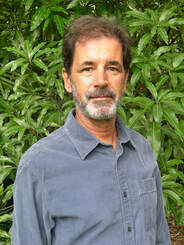
The World at Large: A Review of Empries,
by John Balaban (Copper Canyon, $17)
by Michael Hettich
John Balaban is one of the finest poets of his generation, and indeed one of the best poets at work today. When I say “fine,” I mean just that: his poetry communicates a discernment of eye and ear attuned to nuance, subtle variation, and the truths embedded therein. These qualities, coupled with a rare intelligence, a deeply informed worldview and a resistance to navel-gazing or rhetorical pomposity, combine to invest his work with a Classical tenor that has the clarity of good prose and the heft of well-made poetry. As with all of his previous books of poetry and prose, his new book, Empires, is an engaging, invigorating, expertly crafted collection that manages to speak simultaneously to and of our time as well as of the great span of history that has brought us to this moment.
Balaban’s widely admired body of work includes seven previous books of his own poetry, translations from the Vietnamese, works of fiction, and works of non-fiction and memoir. Remembering Heaven’s Face (1991), his memoir of serving as a conscientious objector working for the International Voluntary Services in Vietnam during that war, has been called “one of the most beautifully written books ever published about Vietnam.” Of Locusts at the Edge of Summer, his selected poems (1997), Maxine Kumin said, “Balaban seems to me to be our moral spokesperson, our lyricist, exhorter, and consoler: in short, the poet we need.” These words apply equally to his new book. Here his wide-reaching worldview is matched by an equally capacious empathy that refuses to flinch, dissemble, or turn to idiosyncratic rumination. As in his earlier work, Balaban is acutely aware of the extent to which our present is determined by the past, and as such his unadorned, carefully crafted poems present a larger and more incisive, politically informed worldview than most poets of our time—politically engaged or not—can pretend to. In this he strikes me as a uniquely prescient and important voice. Here, in the opening lines of the opening poem in the book, the immediate aftermath of 9/11 feels eerily predictive of our particular moment, some twenty years hence:
After most of the bodies were hauled away
and while the FBI and Fire Department and NYPD
were still haggling about who was in charge, as smoke cleared,
the figures in Tyvek suits came, gloved, gowned, masked,
ghostly figures searching rubble for pieces of people,
bagging, then sending the separate and commingled remains
to the temporary morgue set up on site.
This is where the snip of forefinger began its journey.
(“A Finger”)
The searing intensity of this poem is followed by the quieter but equally powerful “After the Inauguration, 2013,” which recounts the author’s train trip back home to the South after having attended the second inauguration of Barak Obama. Balaban’s speaker here watches the post-inauguration revelers and ordinary citizens in the car with him as the train passes “graves/ of Confederates from Petersburg’s nine-month siege, men/ who survived neither battle nor makeshift hospital...” and towns where “a black GI was shot to death,” aware all the time that, despite the hopeful, jubilant occasion they’ve shared, “the past hovers like smoke or a train whistle call.” And with brilliant and audacious assurance, Balaban follows this poem of the immediate past with one in the voice of the ancient Greek philosopher Xenophanes, which closes with these equally prescient lines:
Such is Xenophanes, aged rhapsode and lover of wisdom,
who looked into all things of earth and heaven
and made of them a song, sung in a time of barbarians.
(“Gods and Empire”)
Adding further nuance and depth to this book’s overall thematic arc, Balaban has included several expertly rendered translations of the 20th century Romanian poets Benjamin Fondane and Stefan Augustin Doinas. Fondane, a poet and philosopher who occasionally wrote under the name Fundoianu, perished in Auschwitz in 1944. Balaban’s translation of what is probably his final poem, “Preface En Prose,” forms one of the thematic and emotional centers of this book:
Like you I read all the newspapers, the books,
and understood nothing of the world,
understood nothing about men,
though often I may have claimed to.
When death, when death came, perhaps
I pretended to understand but, really...
when all of death entered my astonished eyes
I was stunned by how little I had understood.
If these translations fit seamlessly into the central thematic and formal vision of Empires, Balaban’s crisply detailed elegies and portraits of friends form a poignant counterpoint, deepening the overall vision of the book and imbuing it with a tender and nicely modulated intimacy:
Last night, as dials of dune grass marked time in the sand
and while the summer’s clock of stars circled the Pole
a fox curled in a hollow, snug in the sea-oat dunes.
A huge green turtle struggled ashore to nest...
(“At Nora’s House, Shepard’s Roost, Atlantic Beach, NC”)
Central to the power of this deftly edited and carefully sequenced book is the aforementioned Classical clarity and exactness in Balaban’s lines and verse forms. Even in his most intimate, tenderhearted poems, the writing, almost self-effacing in its poise and balance, is well-wrought and clear. Balaban’s gaze turns always outward. Wherever he looks and whatever he writes about, he is ever-aware of the moral implications embedded in history and in the way we respond to what we understand—or refuse to understand--of that history.
Finally, one of the great pleasures of Empires is in the sheer excellence of its writing. Many of these poems have the sure of touch of a master. Here, in full, is “Coyote Past Sunset”:
Finally, after a whole day of trailing trucks,
the highways loud with tire whine and bumper glare,
he got onto a blacktop running south to Mexico,
just him on the road, and off in the desert, dust devils
swirling over greasewood and yucca spikes,
ruffling the vultures sunning on fence posts
and whipping up grit around the odd horse
or pronghorns grazing with cattle, as he sped on
past hundreds of miles of barbed-wire fences.
After dusk, when he was nearly there, the moon
rose over the Chinati Mountains lighting cottonwoods
as he crossed the dry arroyo at the town limits.
Everything felt good, he thought. It was good to be alone.
That’s when he saw the coyote trotting the berm,
turning its head to give him a haggard look, licking the air,
then padding out toward the high desert, past a house
with its TV flickering, the family at its meal.
This is thrilling poetry of high craft and artistry, work that will last--and in doing so, communicate to future readers that perhaps ours wasn’t wholly an age of barbarians.
Michael Hettich’s most recent book of poems is To Start an Orchard (2019). His website is michaelhettich.com
by John Balaban (Copper Canyon, $17)
by Michael Hettich
John Balaban is one of the finest poets of his generation, and indeed one of the best poets at work today. When I say “fine,” I mean just that: his poetry communicates a discernment of eye and ear attuned to nuance, subtle variation, and the truths embedded therein. These qualities, coupled with a rare intelligence, a deeply informed worldview and a resistance to navel-gazing or rhetorical pomposity, combine to invest his work with a Classical tenor that has the clarity of good prose and the heft of well-made poetry. As with all of his previous books of poetry and prose, his new book, Empires, is an engaging, invigorating, expertly crafted collection that manages to speak simultaneously to and of our time as well as of the great span of history that has brought us to this moment.
Balaban’s widely admired body of work includes seven previous books of his own poetry, translations from the Vietnamese, works of fiction, and works of non-fiction and memoir. Remembering Heaven’s Face (1991), his memoir of serving as a conscientious objector working for the International Voluntary Services in Vietnam during that war, has been called “one of the most beautifully written books ever published about Vietnam.” Of Locusts at the Edge of Summer, his selected poems (1997), Maxine Kumin said, “Balaban seems to me to be our moral spokesperson, our lyricist, exhorter, and consoler: in short, the poet we need.” These words apply equally to his new book. Here his wide-reaching worldview is matched by an equally capacious empathy that refuses to flinch, dissemble, or turn to idiosyncratic rumination. As in his earlier work, Balaban is acutely aware of the extent to which our present is determined by the past, and as such his unadorned, carefully crafted poems present a larger and more incisive, politically informed worldview than most poets of our time—politically engaged or not—can pretend to. In this he strikes me as a uniquely prescient and important voice. Here, in the opening lines of the opening poem in the book, the immediate aftermath of 9/11 feels eerily predictive of our particular moment, some twenty years hence:
After most of the bodies were hauled away
and while the FBI and Fire Department and NYPD
were still haggling about who was in charge, as smoke cleared,
the figures in Tyvek suits came, gloved, gowned, masked,
ghostly figures searching rubble for pieces of people,
bagging, then sending the separate and commingled remains
to the temporary morgue set up on site.
This is where the snip of forefinger began its journey.
(“A Finger”)
The searing intensity of this poem is followed by the quieter but equally powerful “After the Inauguration, 2013,” which recounts the author’s train trip back home to the South after having attended the second inauguration of Barak Obama. Balaban’s speaker here watches the post-inauguration revelers and ordinary citizens in the car with him as the train passes “graves/ of Confederates from Petersburg’s nine-month siege, men/ who survived neither battle nor makeshift hospital...” and towns where “a black GI was shot to death,” aware all the time that, despite the hopeful, jubilant occasion they’ve shared, “the past hovers like smoke or a train whistle call.” And with brilliant and audacious assurance, Balaban follows this poem of the immediate past with one in the voice of the ancient Greek philosopher Xenophanes, which closes with these equally prescient lines:
Such is Xenophanes, aged rhapsode and lover of wisdom,
who looked into all things of earth and heaven
and made of them a song, sung in a time of barbarians.
(“Gods and Empire”)
Adding further nuance and depth to this book’s overall thematic arc, Balaban has included several expertly rendered translations of the 20th century Romanian poets Benjamin Fondane and Stefan Augustin Doinas. Fondane, a poet and philosopher who occasionally wrote under the name Fundoianu, perished in Auschwitz in 1944. Balaban’s translation of what is probably his final poem, “Preface En Prose,” forms one of the thematic and emotional centers of this book:
Like you I read all the newspapers, the books,
and understood nothing of the world,
understood nothing about men,
though often I may have claimed to.
When death, when death came, perhaps
I pretended to understand but, really...
when all of death entered my astonished eyes
I was stunned by how little I had understood.
If these translations fit seamlessly into the central thematic and formal vision of Empires, Balaban’s crisply detailed elegies and portraits of friends form a poignant counterpoint, deepening the overall vision of the book and imbuing it with a tender and nicely modulated intimacy:
Last night, as dials of dune grass marked time in the sand
and while the summer’s clock of stars circled the Pole
a fox curled in a hollow, snug in the sea-oat dunes.
A huge green turtle struggled ashore to nest...
(“At Nora’s House, Shepard’s Roost, Atlantic Beach, NC”)
Central to the power of this deftly edited and carefully sequenced book is the aforementioned Classical clarity and exactness in Balaban’s lines and verse forms. Even in his most intimate, tenderhearted poems, the writing, almost self-effacing in its poise and balance, is well-wrought and clear. Balaban’s gaze turns always outward. Wherever he looks and whatever he writes about, he is ever-aware of the moral implications embedded in history and in the way we respond to what we understand—or refuse to understand--of that history.
Finally, one of the great pleasures of Empires is in the sheer excellence of its writing. Many of these poems have the sure of touch of a master. Here, in full, is “Coyote Past Sunset”:
Finally, after a whole day of trailing trucks,
the highways loud with tire whine and bumper glare,
he got onto a blacktop running south to Mexico,
just him on the road, and off in the desert, dust devils
swirling over greasewood and yucca spikes,
ruffling the vultures sunning on fence posts
and whipping up grit around the odd horse
or pronghorns grazing with cattle, as he sped on
past hundreds of miles of barbed-wire fences.
After dusk, when he was nearly there, the moon
rose over the Chinati Mountains lighting cottonwoods
as he crossed the dry arroyo at the town limits.
Everything felt good, he thought. It was good to be alone.
That’s when he saw the coyote trotting the berm,
turning its head to give him a haggard look, licking the air,
then padding out toward the high desert, past a house
with its TV flickering, the family at its meal.
This is thrilling poetry of high craft and artistry, work that will last--and in doing so, communicate to future readers that perhaps ours wasn’t wholly an age of barbarians.
Michael Hettich’s most recent book of poems is To Start an Orchard (2019). His website is michaelhettich.com
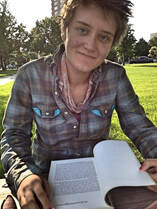
Unprotected Lexicon
Alexa Chrisbacher
2019, Vegetarian Alcoholic Press
978-1-7326827-6-4
by Freesia McKee
There are so many places I could start, but I think the most exciting of these is a punk show. Stepping over the venue’s bruised threshold, you are fourteen or seventeen or twenty-two. You are twenty-seven or twenty-nine or maybe you are punk forever; it’s not about your age, but that feeling of freedom when you see someone performing who seems beyond giving a damn, who is “mic feedback and torn denim.” This person is telling the truth, providing a manifesto of belonging, and you have “dreams of her, being with her. Dreams of herself, of becoming” in the crowd.
Community is a human need. No woman is an island, not even a trailblazer. Language is a kind of built community because we use language to organize our worlds. If we speak the same language, we have, in some ways, a shared understanding. But what do you do when your mother tongue doesn’t have a way to describe you? This is why we turn to punk shows, to poetry.
Alexa Chrisbacher’s Unprotected Lexicon is at its core an examination of how, for so long, our language hasn’t provided a place for queer women. Often, we are only “visible from very far away.” Women are typically reduced to the relational. We are “flesh defined by our movement through others,” which is why we’re raised to view finding a future male partner as the act of our completion. Queer women are proof that women don’t need male protectors. Sometimes, it feels like those of us who are queer women writers spend our careers trying to find ways to tell our stories that doesn’t require exhaustive reiteration of our apartness. But Chrisbacher has rendered it succinctly: all queer women are unprotected lexicons.
Unprotected Lexicon is doing the work of “mapping a lexicon” through the punk show, through roller derby, through zines, through surreal convivial gatherings with famous feminist icons, and through time spent in queer community. The collection’s speakers welcome the protagonist, Lex (yes, I would say this poetry book has a protagonist—and it’s no mistake that Lex is short for “lexicon”), through a cathartic portal and into a place of belonging where “you can fly” on your derby skates and “alter ego is/more real than secret identity.”
Consisting of a book-length, sectioned poem that begins and ends in roller derby, a sport as dangerous and thrilling as the life of a queer poet searching for language, Unprotected Lexicon takes up space. Many of the pages have just a few triple-spaced lines, and some of these remote lines appear as Sapphic fragments. These lines are runaway derby jammers, language deliciously unprotected. Throughout the text, the unnamed speakers share their thoughts as a collective, first-person “we,” addressing Lex in third-person.
I interpret “we” as a crew of honorary roller derby teammates, a lineage of rogue women and non-binary queer people:
“We are rescuing each other.”
“We are not born, we are made.”
“From our laundry lines hang leather catsuits and pantyhose, capes,/bloomers, chest binders, nipple tassels, rusting armor, and fishnet/stockings.”
“All we know is what we have words for,” Chrisbacher writes, which is why, I believe, we often feel our feminist forebearers are important to bring into the room. Gertrude Stein, Kathy Acker, Kathleen Hanna, and Amelia Earhart make appearances in Unprotected Lexicon, showing Lex a way though an imperfect landscape of language.
We are talking with performance artist Kathy Acker about genital piercings. We are wearing skates and practicing derby, “pain pressing against pleasure.” We see Lex who “sips a gin and tonic with Amelia, presses the toe of her boot into an ankle under the table, and asks why she disappeared.” Bittersweet irony, grief mixed with bliss, a full-contact sport like derby is the perfect metaphor for the authentic emotional tenor of these poems.
Unprotected Lexicon also repurposes the language itself of roller derby—“jammer,” “blockers”—and applies it in the context of lexiconic freedom. Disruption, collision, strategy in motion, “nuanced inertia”: this book plays by the rules of an unconventional sport.
“She doesn’t want to be a boy or a girl, she wants to be a tear,” the narrators say of Lex. “She deserves this as much as the figurines on a tiered vanilla cake.”
“If being an athlete is a feminist act, what is a brawl? Can our bodies be/a striking fist?” We are the political striking fist taking to the streets. We are the writer’s hand holding the pencil in protest. A lover’s body is a striking fist. “We are safe here.” We are bloody, beautifully unprotected.
But the long corridor of the book’s white space feels like entering a gymnasium alone. Roller derby practice happens in the “Barn.” My internal experience of reading Unprotected Lexicon made me conjure up fumbling for the lights and practicing alone in the Barn, so to speak, before other players arrive, a solo echo filling out the dream of a community that would carry us. And then, when the others slowly file in, each screech and fall and crash helps us find new names.
Come for the derby girls and feminist punk aesthetic, stay for the incredibly thoughtful discussion of finding a home in language.
Freesia McKee is author of the chapbook How Distant the City (Headmistress Press, 2018). Her words have appeared in Flyway, Bone Bouquet, So to Speak, Tinderbox Poetry Journal, Virga, Painted Bride Quarterly, CALYX, About Place Journal, South Dakota Review, New Mexico Review, and the Ms. Magazine Blog. Freesia is a staff book reviewer for South Florida Poetry Journal. Her reviews have also appeared in Tupelo Quarterly, Pleiades Book Review, Gulf Stream, and The Drunken Odyssey. Freesia was the winner of CutBank Literary Journal’s 2018 Patricia Goedicke Prize in Poetry, chosen by Sarah Vap.
Find her online at freesiamckee.com or on Twitter at @freesiamckee.
Alexa Chrisbacher
2019, Vegetarian Alcoholic Press
978-1-7326827-6-4
by Freesia McKee
There are so many places I could start, but I think the most exciting of these is a punk show. Stepping over the venue’s bruised threshold, you are fourteen or seventeen or twenty-two. You are twenty-seven or twenty-nine or maybe you are punk forever; it’s not about your age, but that feeling of freedom when you see someone performing who seems beyond giving a damn, who is “mic feedback and torn denim.” This person is telling the truth, providing a manifesto of belonging, and you have “dreams of her, being with her. Dreams of herself, of becoming” in the crowd.
Community is a human need. No woman is an island, not even a trailblazer. Language is a kind of built community because we use language to organize our worlds. If we speak the same language, we have, in some ways, a shared understanding. But what do you do when your mother tongue doesn’t have a way to describe you? This is why we turn to punk shows, to poetry.
Alexa Chrisbacher’s Unprotected Lexicon is at its core an examination of how, for so long, our language hasn’t provided a place for queer women. Often, we are only “visible from very far away.” Women are typically reduced to the relational. We are “flesh defined by our movement through others,” which is why we’re raised to view finding a future male partner as the act of our completion. Queer women are proof that women don’t need male protectors. Sometimes, it feels like those of us who are queer women writers spend our careers trying to find ways to tell our stories that doesn’t require exhaustive reiteration of our apartness. But Chrisbacher has rendered it succinctly: all queer women are unprotected lexicons.
Unprotected Lexicon is doing the work of “mapping a lexicon” through the punk show, through roller derby, through zines, through surreal convivial gatherings with famous feminist icons, and through time spent in queer community. The collection’s speakers welcome the protagonist, Lex (yes, I would say this poetry book has a protagonist—and it’s no mistake that Lex is short for “lexicon”), through a cathartic portal and into a place of belonging where “you can fly” on your derby skates and “alter ego is/more real than secret identity.”
Consisting of a book-length, sectioned poem that begins and ends in roller derby, a sport as dangerous and thrilling as the life of a queer poet searching for language, Unprotected Lexicon takes up space. Many of the pages have just a few triple-spaced lines, and some of these remote lines appear as Sapphic fragments. These lines are runaway derby jammers, language deliciously unprotected. Throughout the text, the unnamed speakers share their thoughts as a collective, first-person “we,” addressing Lex in third-person.
I interpret “we” as a crew of honorary roller derby teammates, a lineage of rogue women and non-binary queer people:
“We are rescuing each other.”
“We are not born, we are made.”
“From our laundry lines hang leather catsuits and pantyhose, capes,/bloomers, chest binders, nipple tassels, rusting armor, and fishnet/stockings.”
“All we know is what we have words for,” Chrisbacher writes, which is why, I believe, we often feel our feminist forebearers are important to bring into the room. Gertrude Stein, Kathy Acker, Kathleen Hanna, and Amelia Earhart make appearances in Unprotected Lexicon, showing Lex a way though an imperfect landscape of language.
We are talking with performance artist Kathy Acker about genital piercings. We are wearing skates and practicing derby, “pain pressing against pleasure.” We see Lex who “sips a gin and tonic with Amelia, presses the toe of her boot into an ankle under the table, and asks why she disappeared.” Bittersweet irony, grief mixed with bliss, a full-contact sport like derby is the perfect metaphor for the authentic emotional tenor of these poems.
Unprotected Lexicon also repurposes the language itself of roller derby—“jammer,” “blockers”—and applies it in the context of lexiconic freedom. Disruption, collision, strategy in motion, “nuanced inertia”: this book plays by the rules of an unconventional sport.
“She doesn’t want to be a boy or a girl, she wants to be a tear,” the narrators say of Lex. “She deserves this as much as the figurines on a tiered vanilla cake.”
“If being an athlete is a feminist act, what is a brawl? Can our bodies be/a striking fist?” We are the political striking fist taking to the streets. We are the writer’s hand holding the pencil in protest. A lover’s body is a striking fist. “We are safe here.” We are bloody, beautifully unprotected.
But the long corridor of the book’s white space feels like entering a gymnasium alone. Roller derby practice happens in the “Barn.” My internal experience of reading Unprotected Lexicon made me conjure up fumbling for the lights and practicing alone in the Barn, so to speak, before other players arrive, a solo echo filling out the dream of a community that would carry us. And then, when the others slowly file in, each screech and fall and crash helps us find new names.
Come for the derby girls and feminist punk aesthetic, stay for the incredibly thoughtful discussion of finding a home in language.
Freesia McKee is author of the chapbook How Distant the City (Headmistress Press, 2018). Her words have appeared in Flyway, Bone Bouquet, So to Speak, Tinderbox Poetry Journal, Virga, Painted Bride Quarterly, CALYX, About Place Journal, South Dakota Review, New Mexico Review, and the Ms. Magazine Blog. Freesia is a staff book reviewer for South Florida Poetry Journal. Her reviews have also appeared in Tupelo Quarterly, Pleiades Book Review, Gulf Stream, and The Drunken Odyssey. Freesia was the winner of CutBank Literary Journal’s 2018 Patricia Goedicke Prize in Poetry, chosen by Sarah Vap.
Find her online at freesiamckee.com or on Twitter at @freesiamckee.
Guest Review
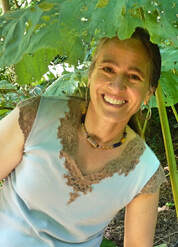
Spells and Signs: A Review of Lorette C. Luzajic’s Pretty Time Machine: ekphrastic prose poems
(Mixed Up Media, 2020)
by Devon Balwit
Midway through Lorette C. Luzajic’s new collection, her narrator crows, “Yeah, baby. We made it to middle age” and observes, “I should always have had more respect for plumbers and electricians than I had for addicts and revolutionaries.” By this point in our reading, we realize why. Having outlived many friends, roommates, and relatives, she can congratulate herself on the workaday fact of continuing to exist. “We conflate pain with genius,” Luzajic notes, and become caught up in self-destructive ways of blunting family trauma. Younger, she awakened from OD-ing only to ask if someone could cut her another line. Older, she ruefully notes that she has ten one-month clean tokens from NA and now indulges in nothing stronger than wine. Older still, she revels in mentoring a child, in the daunting task of teaching her to survive. Throughout the collection, we are treated to numerous last words: Hart Crane’s “Goodbye, everybody,” uttered before jumping into the Gulf of Mexico; Joseph Cornell’s virginal lament: “I wish I had not been so reserved.” However, as her ghostly self reminds her, her own last words have yet to be said: “not everything is written already, all stories begin without an ending, even yours.”
In one poem, Luzajic shares that her favorite animal is the camel. An astute reader can recognize the ready metaphor. This is an artist / poet who stockpiles all that she has lived through—the traumas, the deaths, the recoveries, the misses and near-misses, the love-making, the substance abuse, the sensuous appreciations of food, architecture, music and art—for later use. The book itself serves as a sort of camel’s hump, rich and sustaining, each prose poem usually headed by either or both a painting attribution and a quote. The epigraphs come from artists, singers, writers, and philosophers, each evocative enough for meditation. One can read, laptop open, using the website created for the book to access the images that inform the poems. I did additional research, eager to learn more about the featured artists and see more of their work—the paintings of Jean-Michel Basquiat, the curiosity cabinets of Joseph Cornell, and the macabre cadaver art of Joel Peter Witkin among them.
Luzajic’s prose poems lose nothing of poetry’s music for being extensive lists or large blocks of text. In a poem, titled Figment, she speaks to her illusory companion thus: [Y]ou were tiny and jumpy, a rickety rinkydink of a trinket, with sparks coming off your lips and your frenzied hands.” In Bergamot, she muses: “If loss can loom, then it is grief in advance, you note, making note of the uncanny jammy snap on your palate from the shiraz.” In Disappointment, she writes: “I imagined Monet in his mist, shrouded by morning’s last eight. Claude evaporating with the water, pushing pond lilies to the side of the progue with a tender oar, lifting the slimy pads to new light with a lover’s hand.” These poems stand up to being read aloud.
In Pretty Time Machine, we not only travel through the Luzajic’s life, but through space. Her poems take us to Cuba, Peru, Mexico, Brazil, Serbia, Columbia, Spain, Canada, the Holy Land, the U.S. and more. We contemplate questions of ethics and aesthetics, death and what comes after, while never far from the sensual and erotic. It is a hefty collection, bringing together two hundred poems of unsparing stock-taking of herself and others. While perhaps a handful remain too internal for the reader to grasp, a dwelling on a memory or an encounter that stays Luzajic’s alone, the majority hold the reader’s interest and work together as an organic unity. What Luzajic declares in a fellow artist’s studio serves as an apt closing comment on the reading of this book: “You will not forget again these things…You will be remade, and you do not have any say in this.”
Devon Balwit's work can be found here as well as in The Worcester Review, The Cincinnati Review, Borderlands, Tampa Review, Apt (long form issue), Tule Review, Rattle, Sugar House Review, Poetry South, saltfront, and Grist among others. For more, visit her website: https://pelapdx.wixsite.com/devonbalwitpoet
(Mixed Up Media, 2020)
by Devon Balwit
Midway through Lorette C. Luzajic’s new collection, her narrator crows, “Yeah, baby. We made it to middle age” and observes, “I should always have had more respect for plumbers and electricians than I had for addicts and revolutionaries.” By this point in our reading, we realize why. Having outlived many friends, roommates, and relatives, she can congratulate herself on the workaday fact of continuing to exist. “We conflate pain with genius,” Luzajic notes, and become caught up in self-destructive ways of blunting family trauma. Younger, she awakened from OD-ing only to ask if someone could cut her another line. Older, she ruefully notes that she has ten one-month clean tokens from NA and now indulges in nothing stronger than wine. Older still, she revels in mentoring a child, in the daunting task of teaching her to survive. Throughout the collection, we are treated to numerous last words: Hart Crane’s “Goodbye, everybody,” uttered before jumping into the Gulf of Mexico; Joseph Cornell’s virginal lament: “I wish I had not been so reserved.” However, as her ghostly self reminds her, her own last words have yet to be said: “not everything is written already, all stories begin without an ending, even yours.”
In one poem, Luzajic shares that her favorite animal is the camel. An astute reader can recognize the ready metaphor. This is an artist / poet who stockpiles all that she has lived through—the traumas, the deaths, the recoveries, the misses and near-misses, the love-making, the substance abuse, the sensuous appreciations of food, architecture, music and art—for later use. The book itself serves as a sort of camel’s hump, rich and sustaining, each prose poem usually headed by either or both a painting attribution and a quote. The epigraphs come from artists, singers, writers, and philosophers, each evocative enough for meditation. One can read, laptop open, using the website created for the book to access the images that inform the poems. I did additional research, eager to learn more about the featured artists and see more of their work—the paintings of Jean-Michel Basquiat, the curiosity cabinets of Joseph Cornell, and the macabre cadaver art of Joel Peter Witkin among them.
Luzajic’s prose poems lose nothing of poetry’s music for being extensive lists or large blocks of text. In a poem, titled Figment, she speaks to her illusory companion thus: [Y]ou were tiny and jumpy, a rickety rinkydink of a trinket, with sparks coming off your lips and your frenzied hands.” In Bergamot, she muses: “If loss can loom, then it is grief in advance, you note, making note of the uncanny jammy snap on your palate from the shiraz.” In Disappointment, she writes: “I imagined Monet in his mist, shrouded by morning’s last eight. Claude evaporating with the water, pushing pond lilies to the side of the progue with a tender oar, lifting the slimy pads to new light with a lover’s hand.” These poems stand up to being read aloud.
In Pretty Time Machine, we not only travel through the Luzajic’s life, but through space. Her poems take us to Cuba, Peru, Mexico, Brazil, Serbia, Columbia, Spain, Canada, the Holy Land, the U.S. and more. We contemplate questions of ethics and aesthetics, death and what comes after, while never far from the sensual and erotic. It is a hefty collection, bringing together two hundred poems of unsparing stock-taking of herself and others. While perhaps a handful remain too internal for the reader to grasp, a dwelling on a memory or an encounter that stays Luzajic’s alone, the majority hold the reader’s interest and work together as an organic unity. What Luzajic declares in a fellow artist’s studio serves as an apt closing comment on the reading of this book: “You will not forget again these things…You will be remade, and you do not have any say in this.”
Devon Balwit's work can be found here as well as in The Worcester Review, The Cincinnati Review, Borderlands, Tampa Review, Apt (long form issue), Tule Review, Rattle, Sugar House Review, Poetry South, saltfront, and Grist among others. For more, visit her website: https://pelapdx.wixsite.com/devonbalwitpoet
